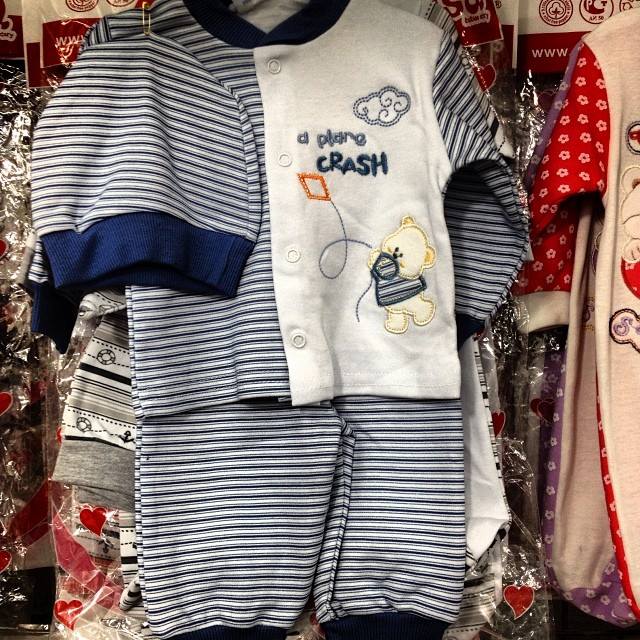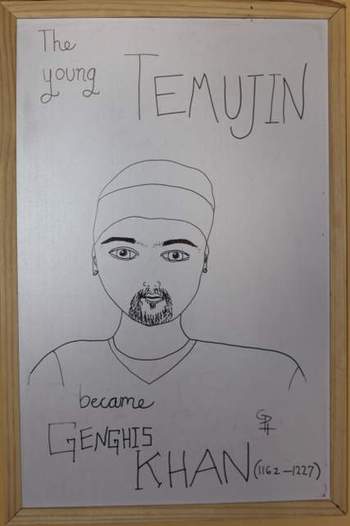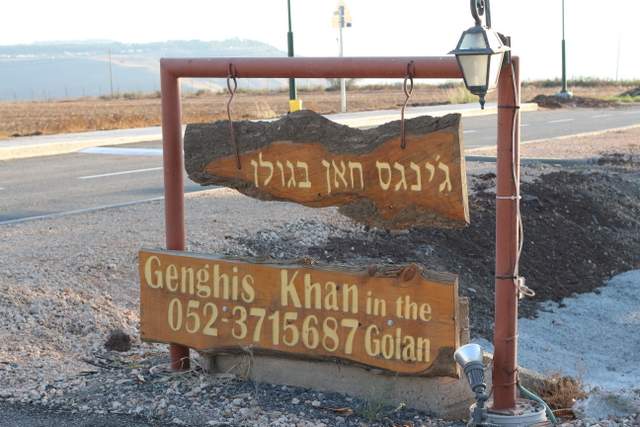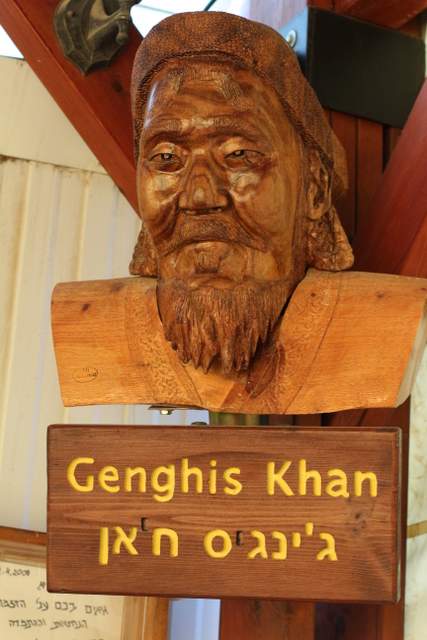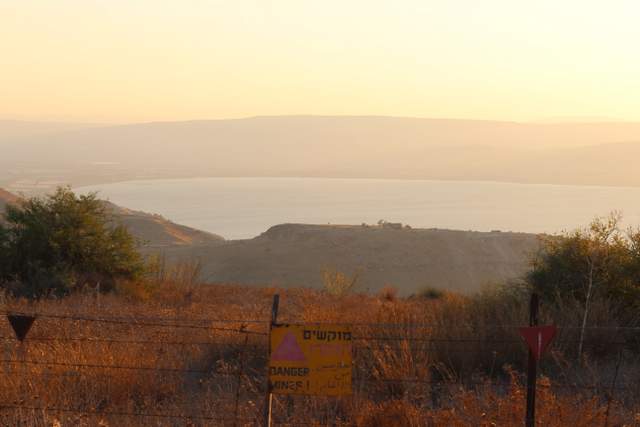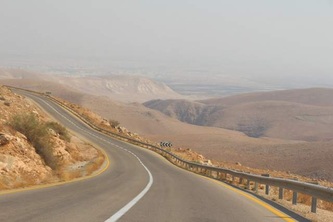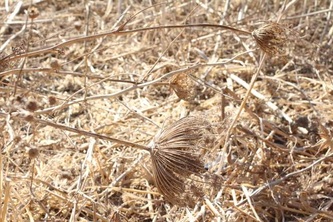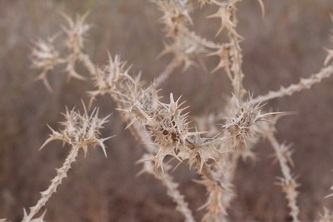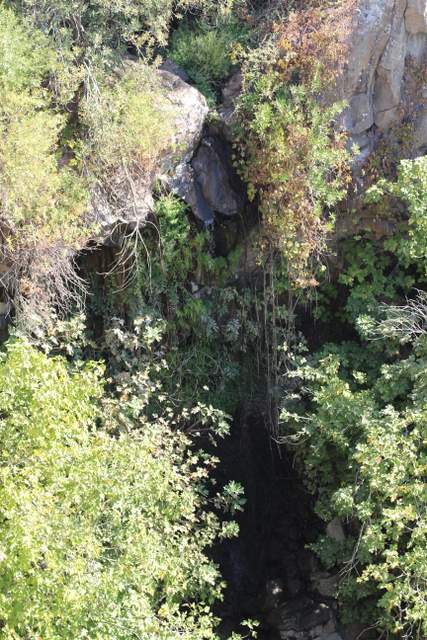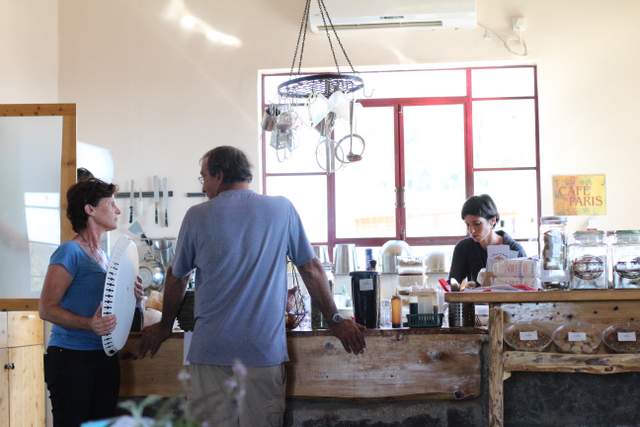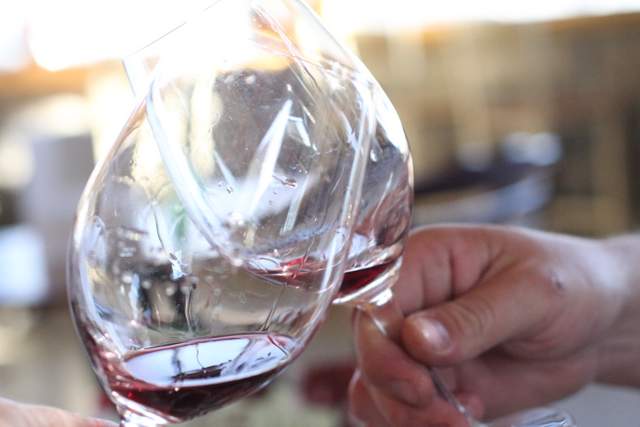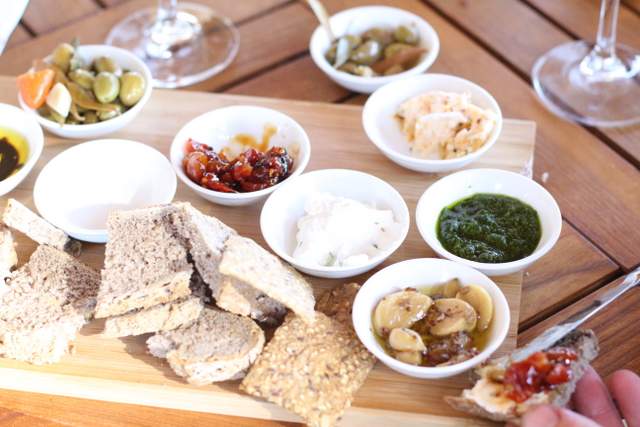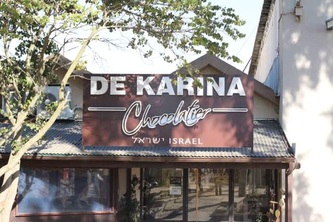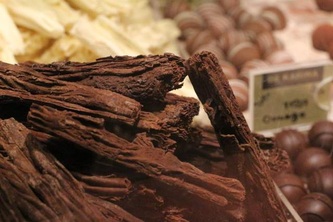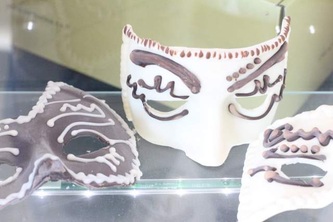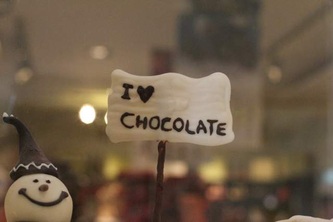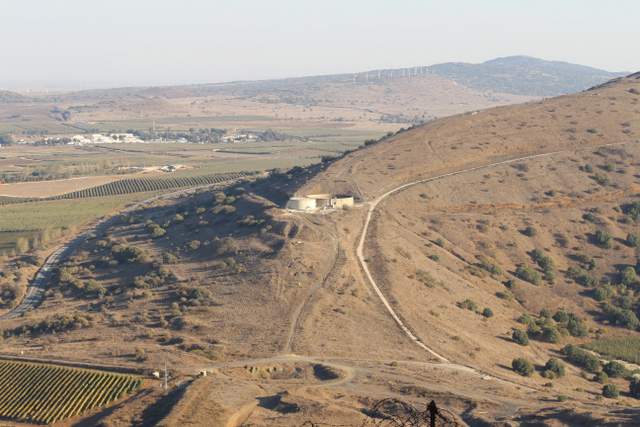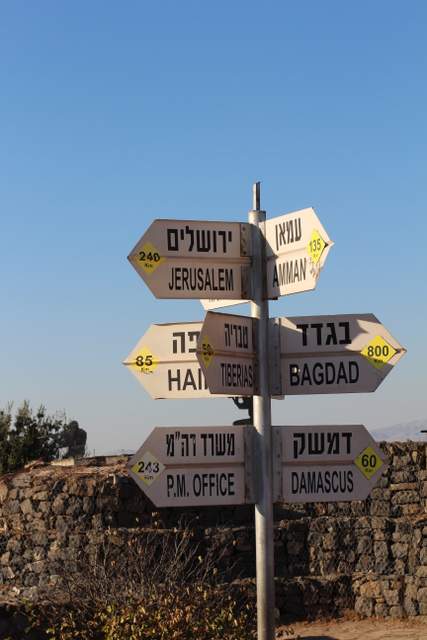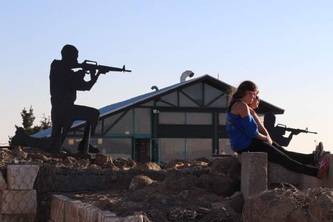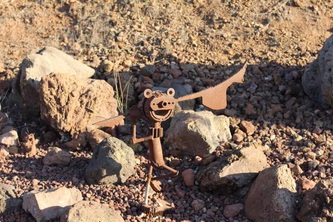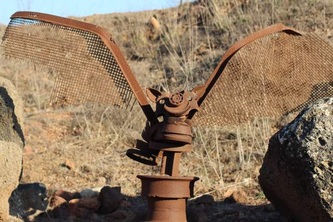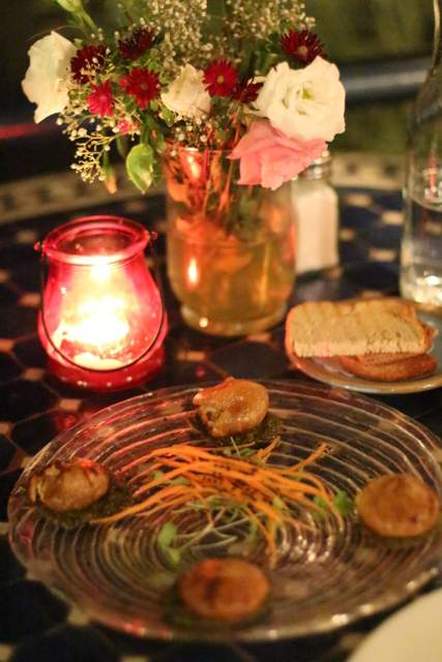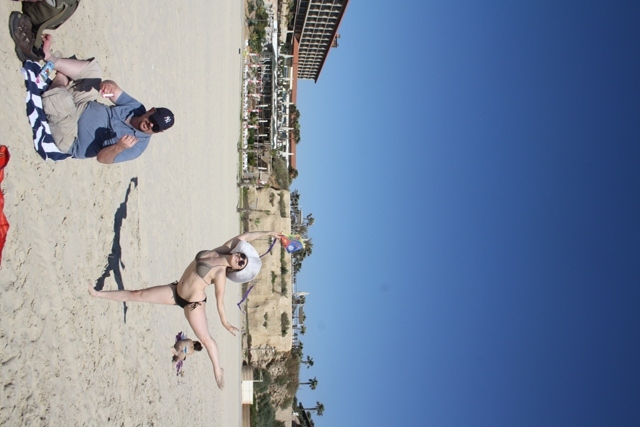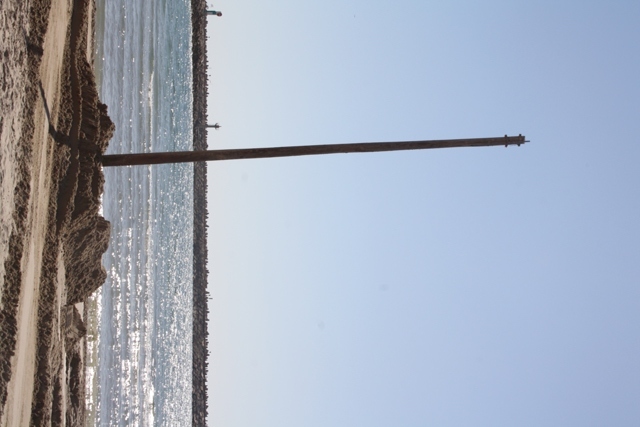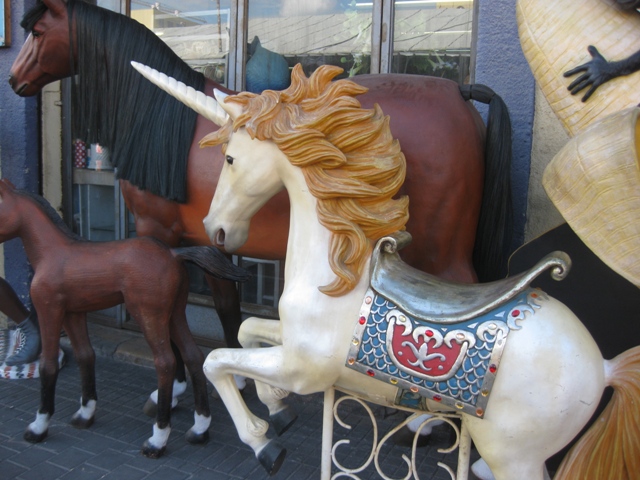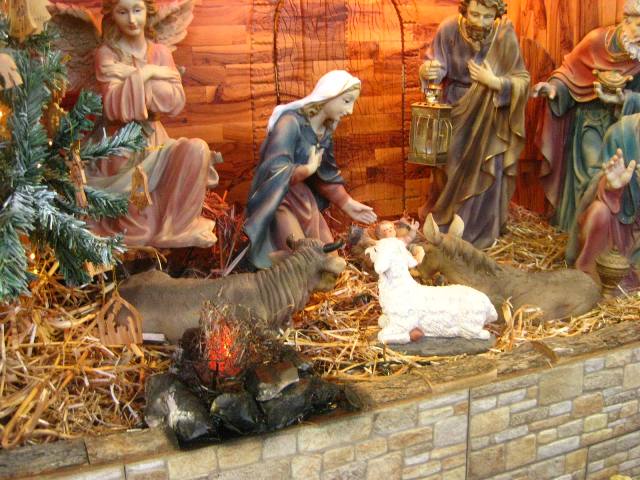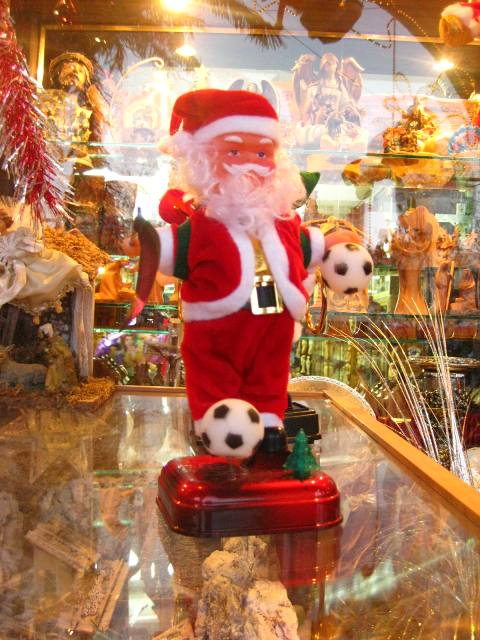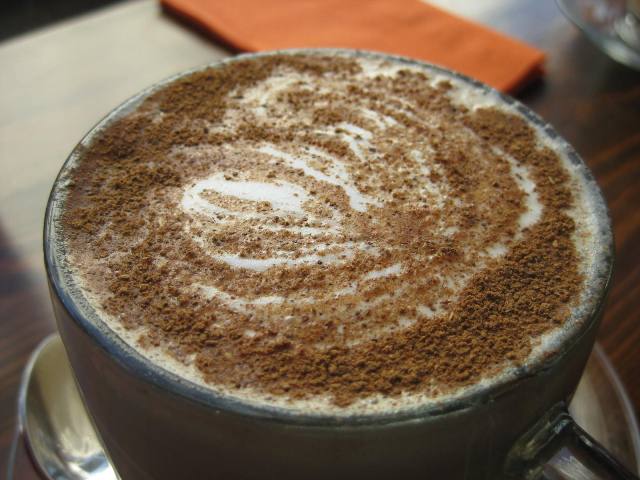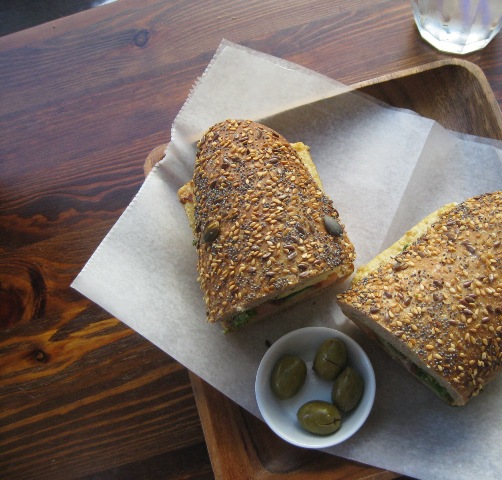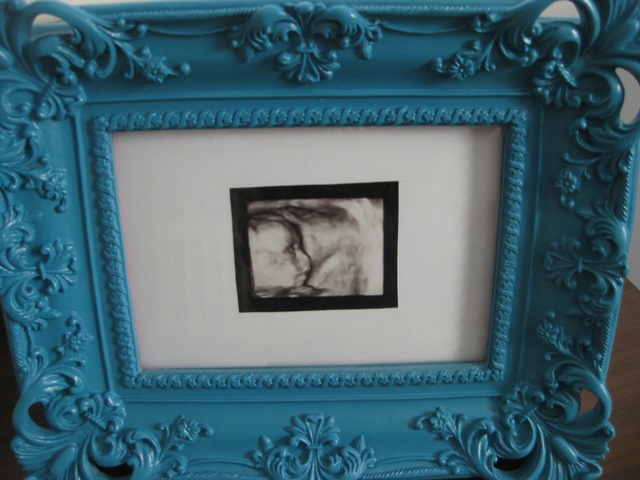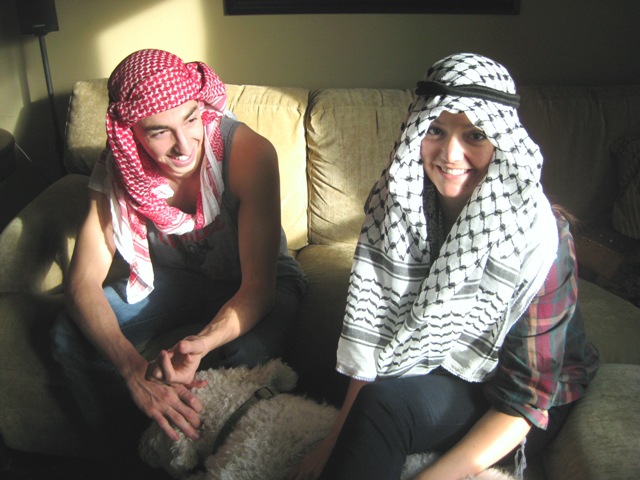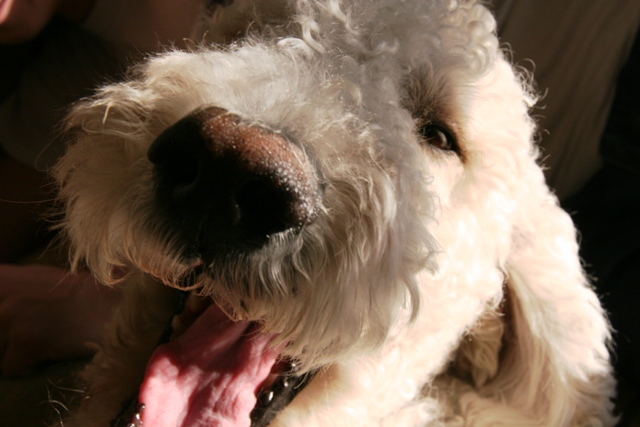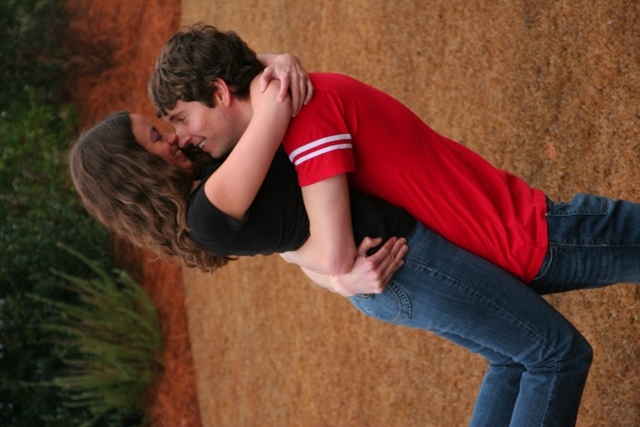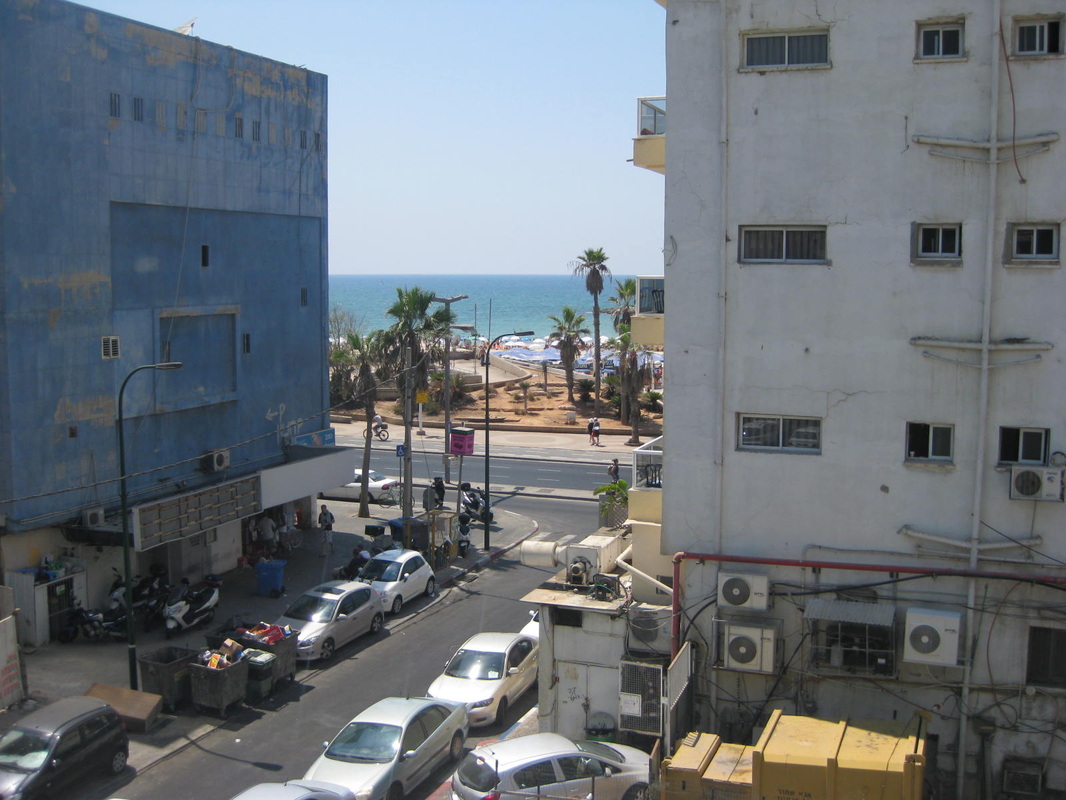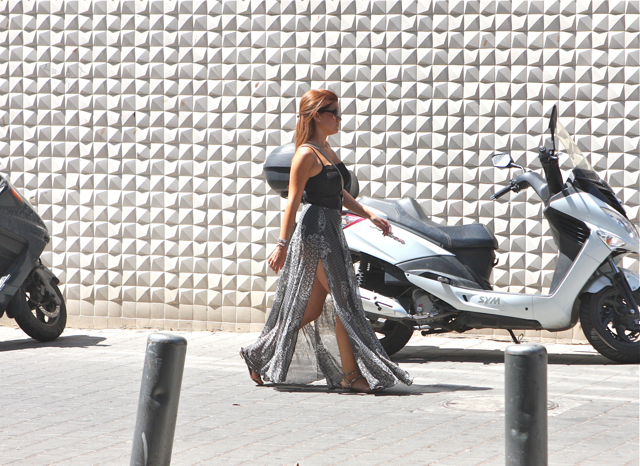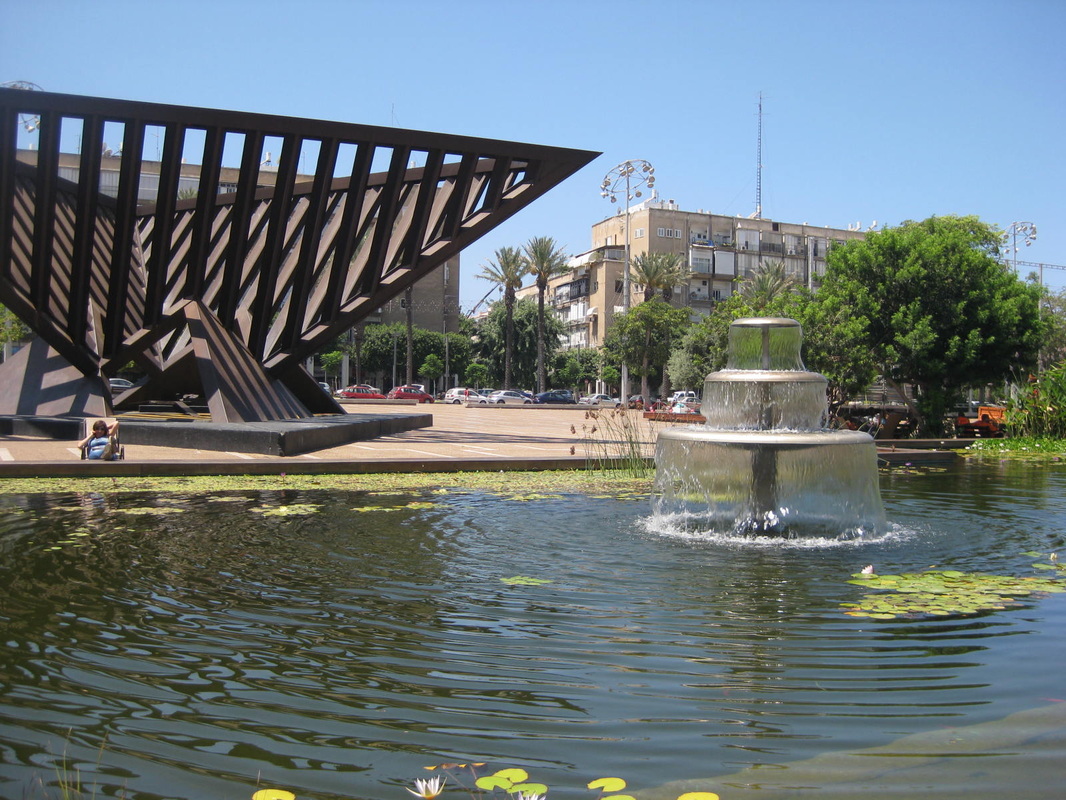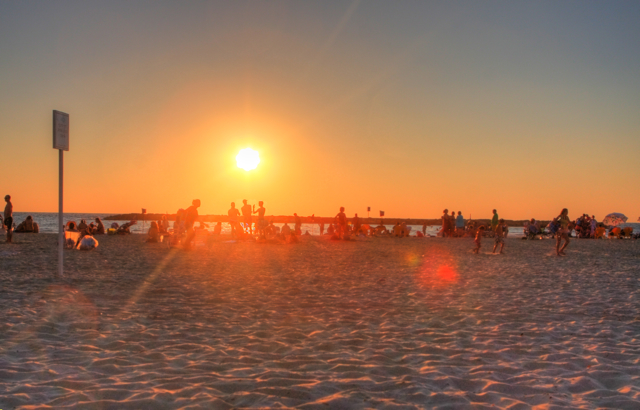Holy Land Sites: Nazareth and the Dome of the Rock
In late May and early June my dear friend Kimberly came to Palestine to visit us.
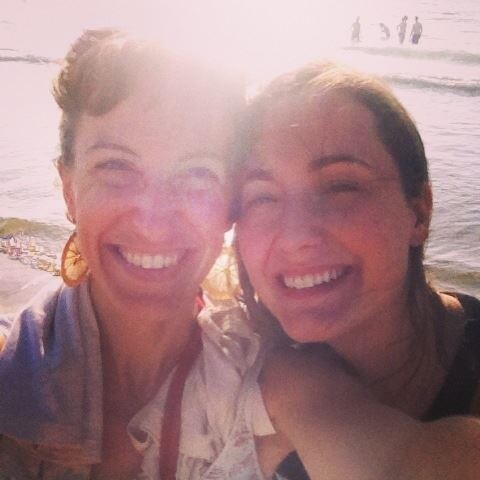
Kimberly is a friend I've known for a long time - since before our first year of college when I called her in the summer of 2003 to find out what kind of person my future roommate was. I knew we'd be friends when I found out she drove a car that she'd painted the exterior of, covering it completely in brightly colored flowers. She still an artist; now she's a professional painter and muralist. And one of my favorite people in the whole world.
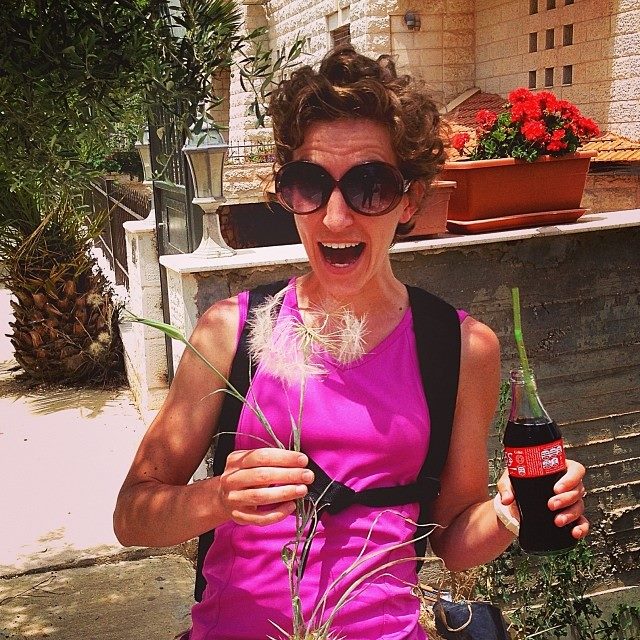
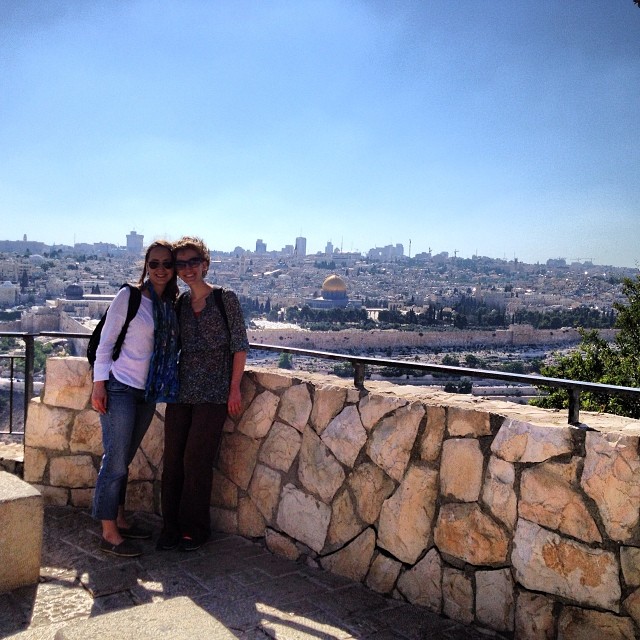
Of course, since this is her first time to the Middle East, we made sure she got to experience plenty of Holy Land sites around Israel and Palestine during her two-week trip. Many of the places we went have been covered previously on this blog, but we did take her to two places that were new to me: the Dome of the Rock in the Old City of Jerusalem, and the Palestinian city of Nazareth in Israel.
Photo credit goes to Kimberly for almost all the pictures in this post.
The Dome of the Rock
Commonly confused with Al-Aqsa Mosque (which has a silver dome) the Dome of the Rock is the famous gold-domed shrine on the Temple Mount in the Old City of Jerusalem. You can see the dome behind Kimberly in this photo.
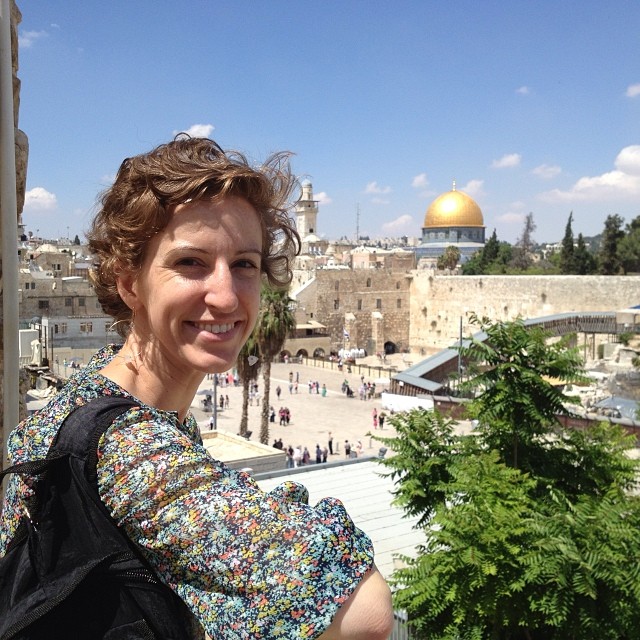
Only Muslims are allowed on the Temple Mount and in the Dome of the Rock, except for during limited visiting hours. Getting to the Old City of Jerusalem is difficult enough that planning to be there during certain hours simply hadn't happened for me previously. However, during Kimberly's visit, we made it happen. The guards told us the visiting hours on our first trip to the old city, and on the second, we experienced the Temple Mount.
First we walked up the wooden footbridge over the Western Wall.
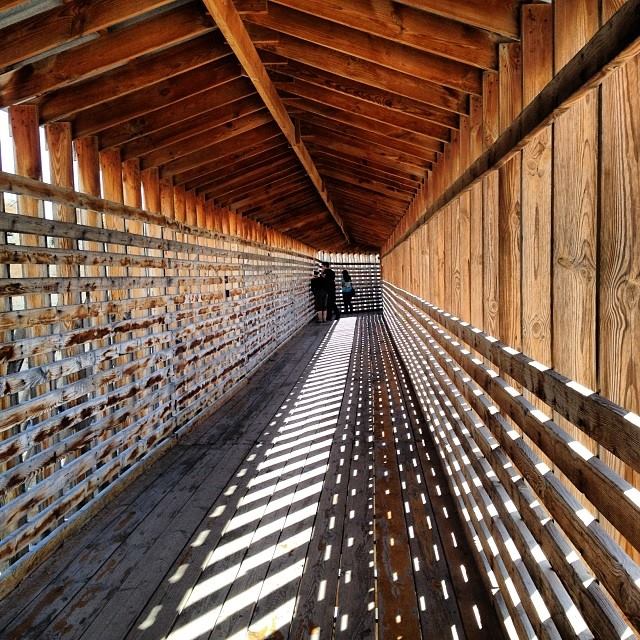
We encountered a stack of riot gear on the way.
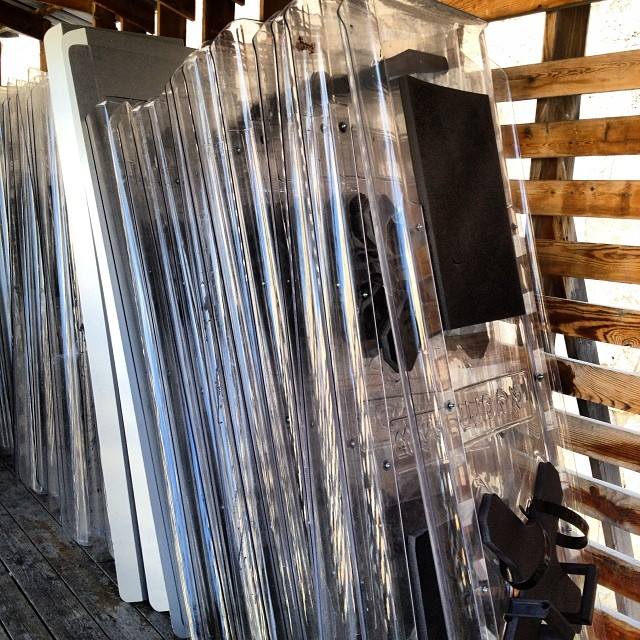
At this point we were in the center of the center of one of the most religiously turbulent places in the world. Through the wooden slats, we peered down upon the holiest place in Judaism, the Western Wall, the only remaining piece of the Temple. Ahead of us lay the Dome of the Rock.
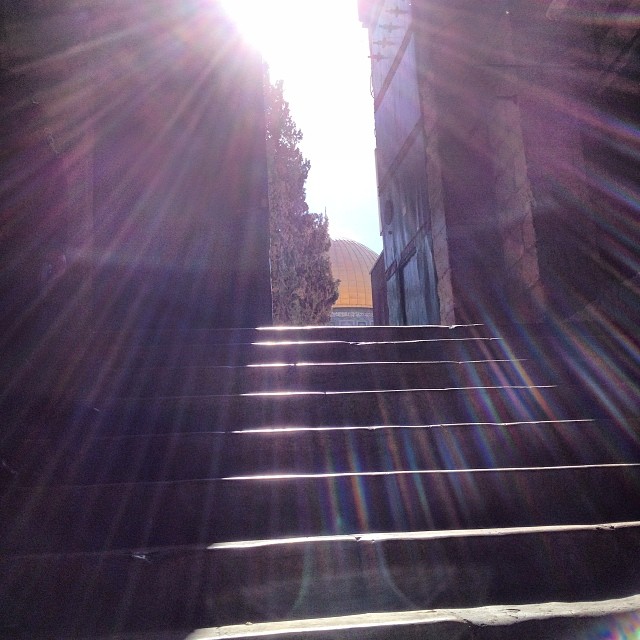
The Dome of the Rock is a sacred site in Islam because tradition says that miracles occurred there, including the Prophet Muhammad's ascension into heaven. Additionally the Foundation Stone around which the Dome of the Rock is built is sacred to Jews as it's considered to be the foundation of the Temple and was the location of the Holy of Holies.
All this results in a strange simmering stew of resentment for members of both religions. On the day we were there, tourists wandered curiously around circles of robed Muslim women who sternly yelled religious chants from texts they held their hands. Some of the tourists appeared to be Jewish, and some were pretending to be Muslim so they could enter the shrine.
One Muslim friend told me he was praying at the Dome of the Rock and a bunch of female Jewish Israeli tourist soldiers entered the male prayer area without appropriate clothing. Apparently the Israeli army uses its military power over the region even to the point of openly disrespecting one of the holiest places in Islam.
Kimberly and I were both labeled as non-Muslims by the guard in front of the shrine, presumably because our heads weren't covered. We weren't allowed to enter, but it wasn't clear whether that was because we weren't Muslim or because we weren't dressed properly. To the guard, it seemed to be the same thing. We circled the shrine and consulted with some tourists who had seen another group of tourists who were allowed to enter. They told us you had to "pass" as Muslim to enter. We were unwilling to lie about our religion, but very willing to dress differently, and that seemed to be all that mattered to the guard. We donned scarves and tried again, only to be turned back because we were wearing t-shirts that showed our elbows.
I'm 80% sure we would've been allowed to enter if we'd covered everything but our face, hands, and feet, so if you are a female non-Muslim who'd like to visit, make sure you dress accordingly.
Kimberly and I had to settle for walking around the grounds of the magnificent shrine.
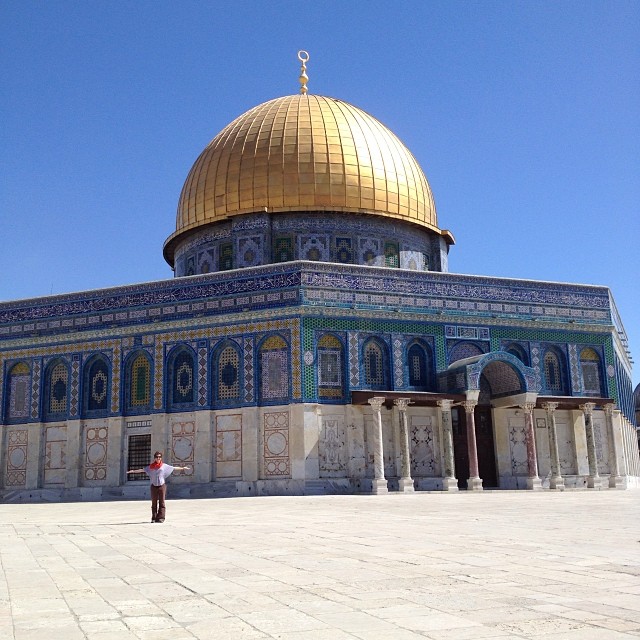
It was truly spectacular.
Nazareth
Nazareth is famous for being the birthplace of Jesus. We toured the Church of the Annunciation, where tradition says Mary received a message from the Angel Gabriel that she would give birth to Jesus.
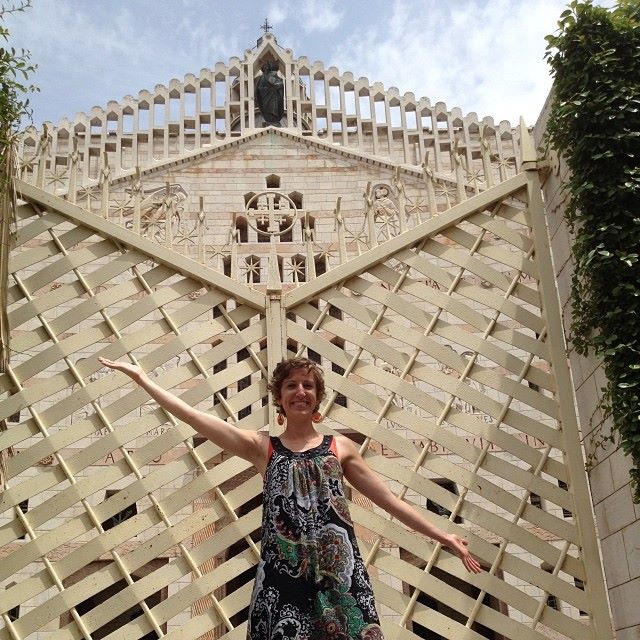
I loved the courtyard of the church, where portraits of Madonna with child hung, each from a different country, and reflecting a different idea of Mary's appearance. My favorites were Thai Mary and Chinese Mary.
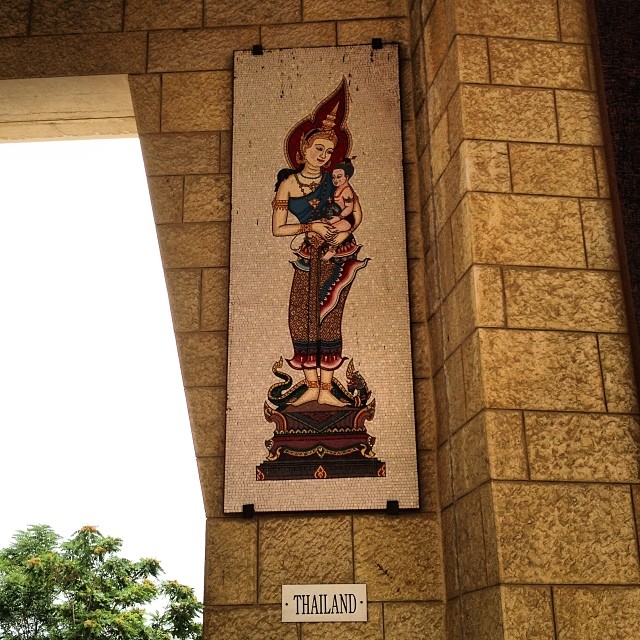
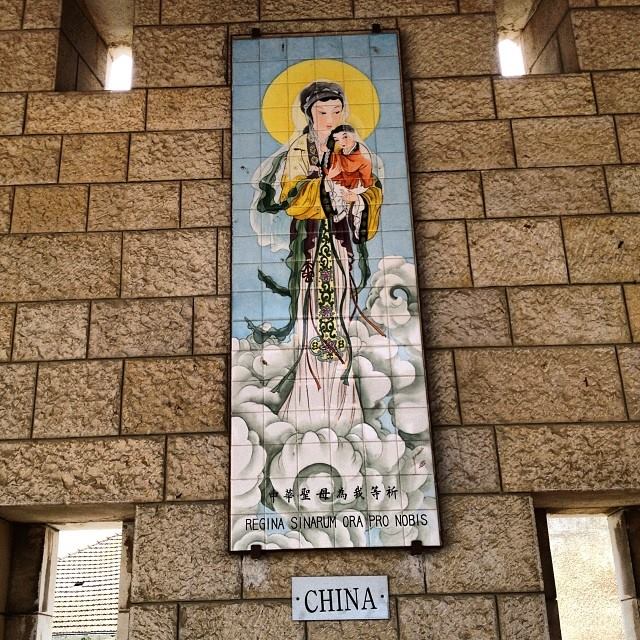
The church is new, so very different in appearance from traditional churches I'm used to visiting. I was happily surprised to discover that the modern interior was warm and soaring. The multiple levels and open central area allowed the chanting from the ongoing Greek Orthodox service to waft up to tourists on the floor above.
None of the photos captured the beauty of the interior, so you'll just have to go visit the church yourself to see it. Here's a sneak peak of the ceiling.
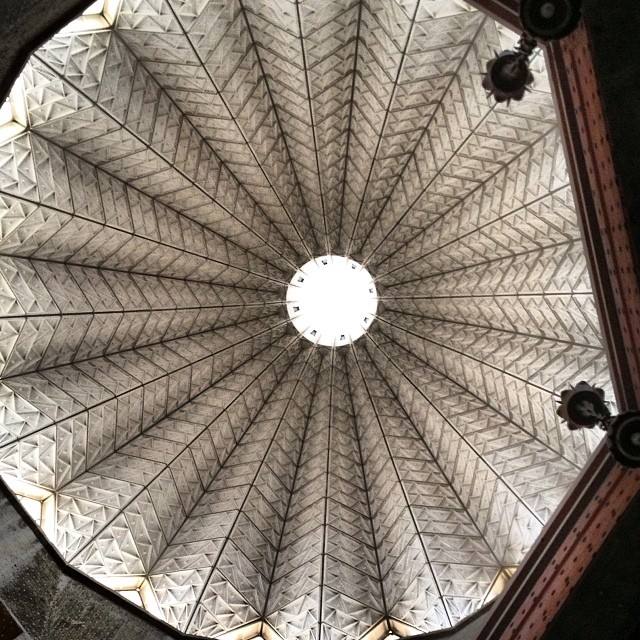
More Fun
Here are a few more photos taken around Israel and Palestine that I can't resist adding.
Kimberly got to see a herd of camels,
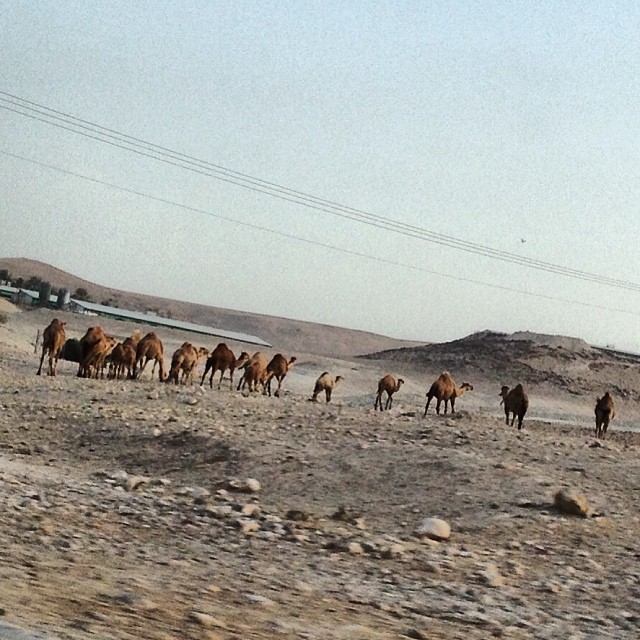
enjoy the Dead Sea and mud,
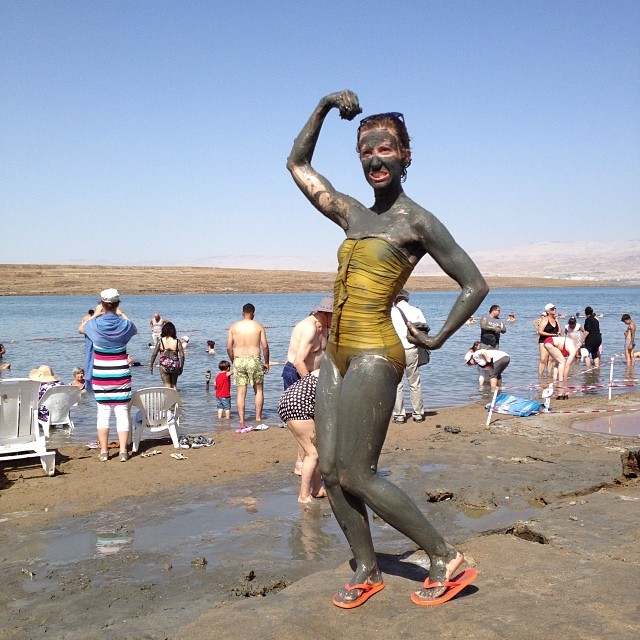
and see the Church of the Sepulchre.
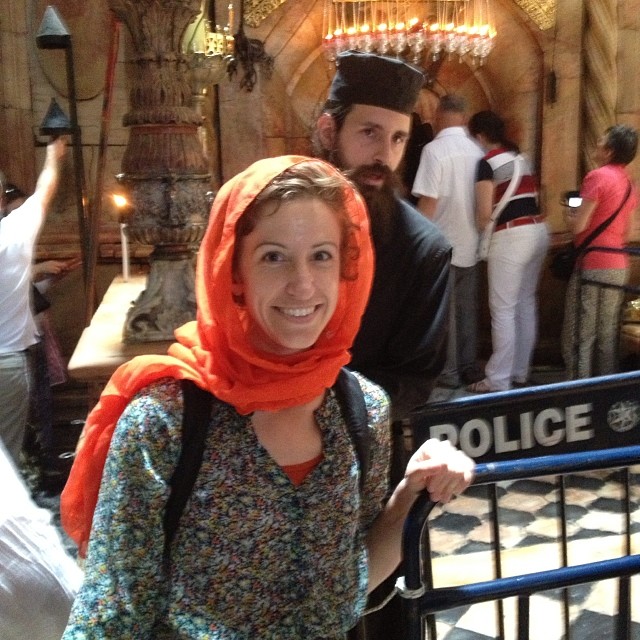
Juthour Arboretum
I also took Kimberly to Juthour Arboretum, our neighbor's project to preserve the natural heritage of Palestine.
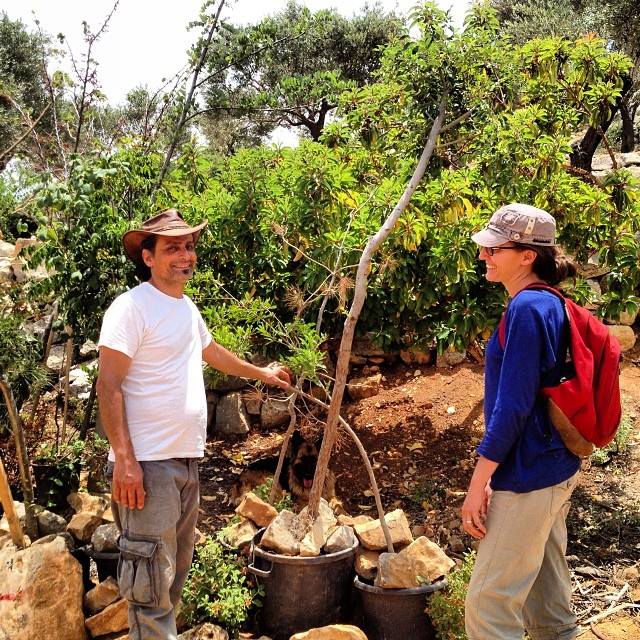
They've made incredible progress on the Arboretum over the past year, and now are running an Indie Go Go campaign to raise funds to forge a sustainable, green Palestine. Please support it below. It's a great cause, and a politically neutral one.
That's Just Wrong
I'll end on a funny note, which is a hilarious onesie we saw when we were shopping for a mutual friend who is having a baby. When clothing with English on it is produced and sold in countries where English isn't widely spoken, this plane-wreck of a fashion situation is what can happen.
Yes, that's for real.
Thanks for a wonderful visit, Kimberly.
Dry Wanderings
We spend the last two weekends in February exploring nearby places that are just too hot and dry to enjoy during the arid summers here. The first weekend, we went down to...
The Negev Desert
Vision: Emotionally fulfilling stargazing and life-changing desert sunrises.
Reality: Overcast skies, dull clouds, freezing winds, and light drizzle.
Before we left, when we confirmed that the forecast was going to dash our star-gazing dreams, Prince Charming asked me if I thought we should still go.
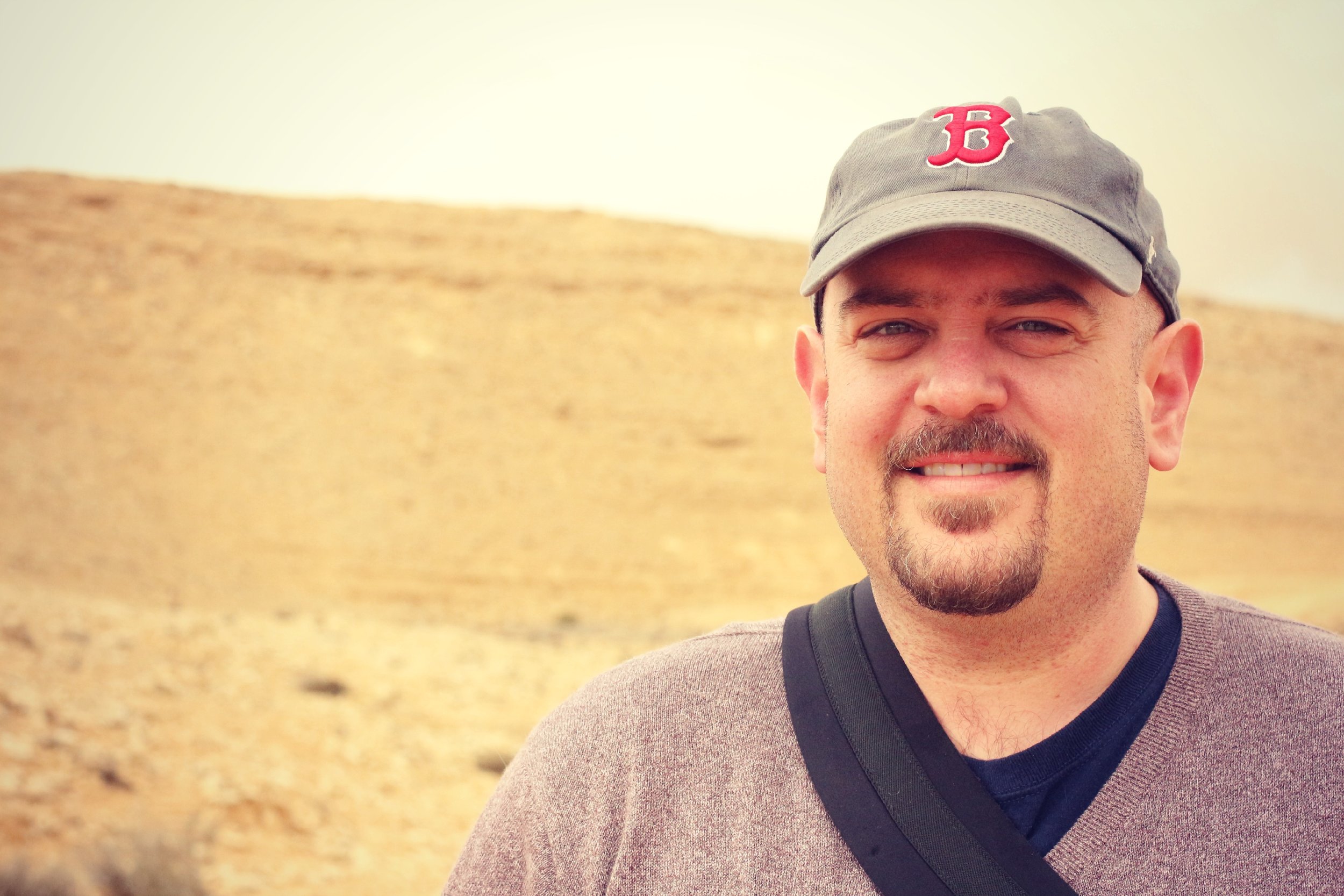
"Yeah," I said. "We'll go and have fun despite the weather."
And we did. It was cold and the skies were lugubrious, but there was something charming about the town of Mitzpe Ramon, Israel. It's a small outpost that has attracted a combination of hikers, outdoor enthusiasts, and eccentric artist types. And you know how much I love eccentric artists types. Charming and I always feel comfortable in places inhabited by eccentric artist types. And I also love outdoor enthusiasts. So I felt right at home.
I took this picture in Mitzpe Ramon. It's a bicycle (outdoorsy type thing) that has been covered with white fuzz and turned into a permanent art display (eccentric artist thing to do).
Here's the rest of that art installation:
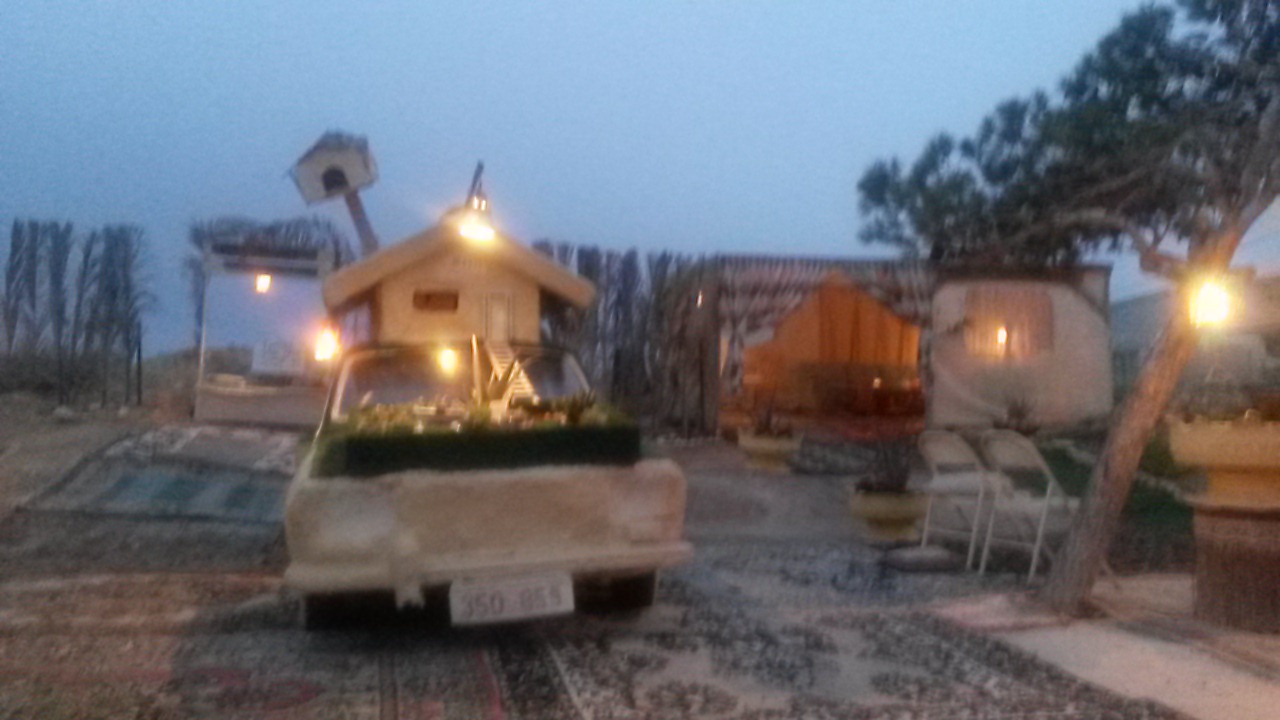
I think it's impressive that Mitzpe Ramon has attracted anyone at all, considering that its claim to fame is a hole. A very large hole in the ground. We couldn't find the hole at first, so we drove around, asking each other do you think the hole is over there? Could it be over there by those nice apartment buildings? Maybe if we follow the sign that says "visitor center."
Then, after a frigid walk/jog up an incline, we came upon the hole.
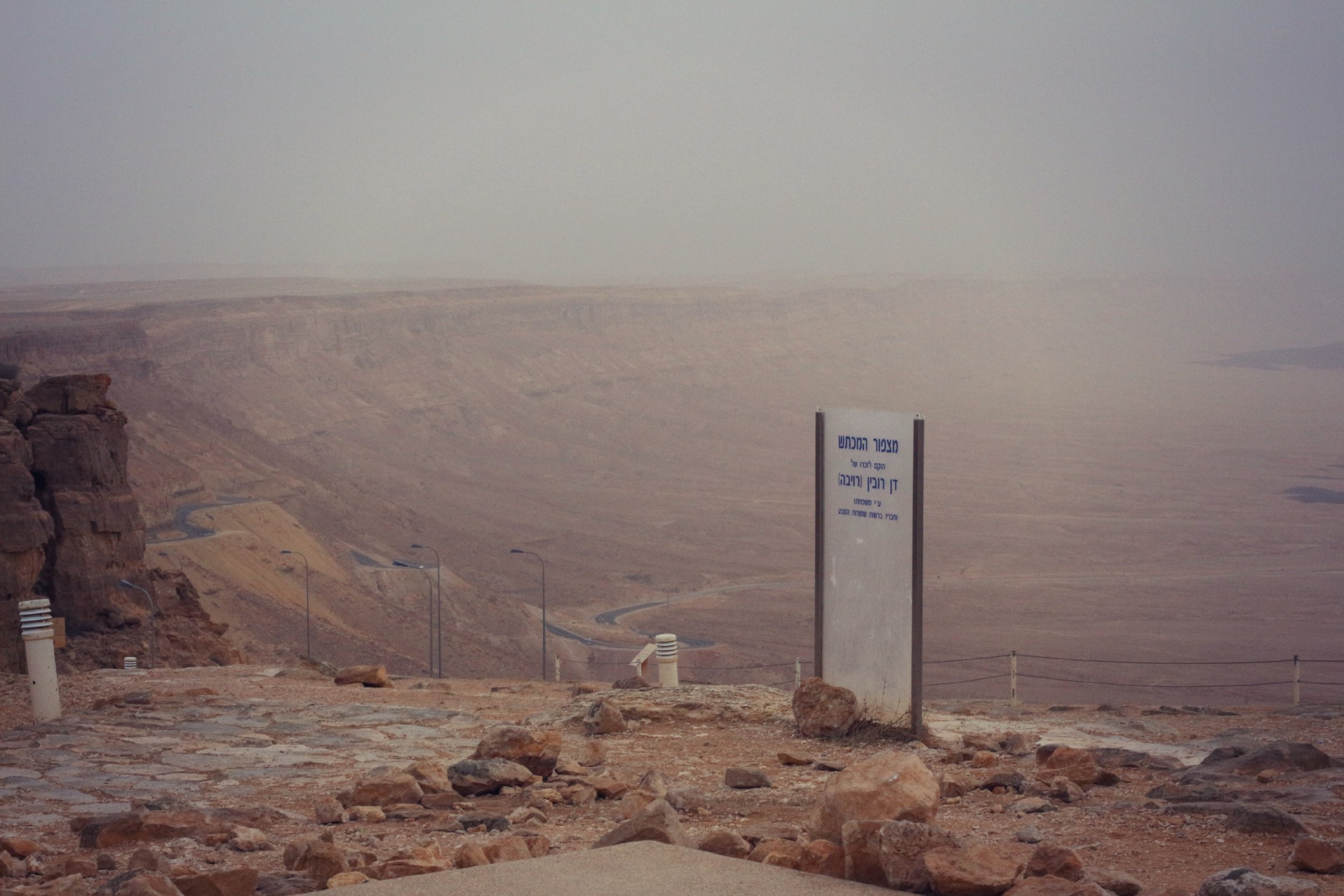
According to TouristIsrael.com, this hole is the world's largest erosion makhtesh. Makhtesh is often translated as "crater," but that is misleading since this hole wasn't caused by an explosion or the impact of a celestial body.
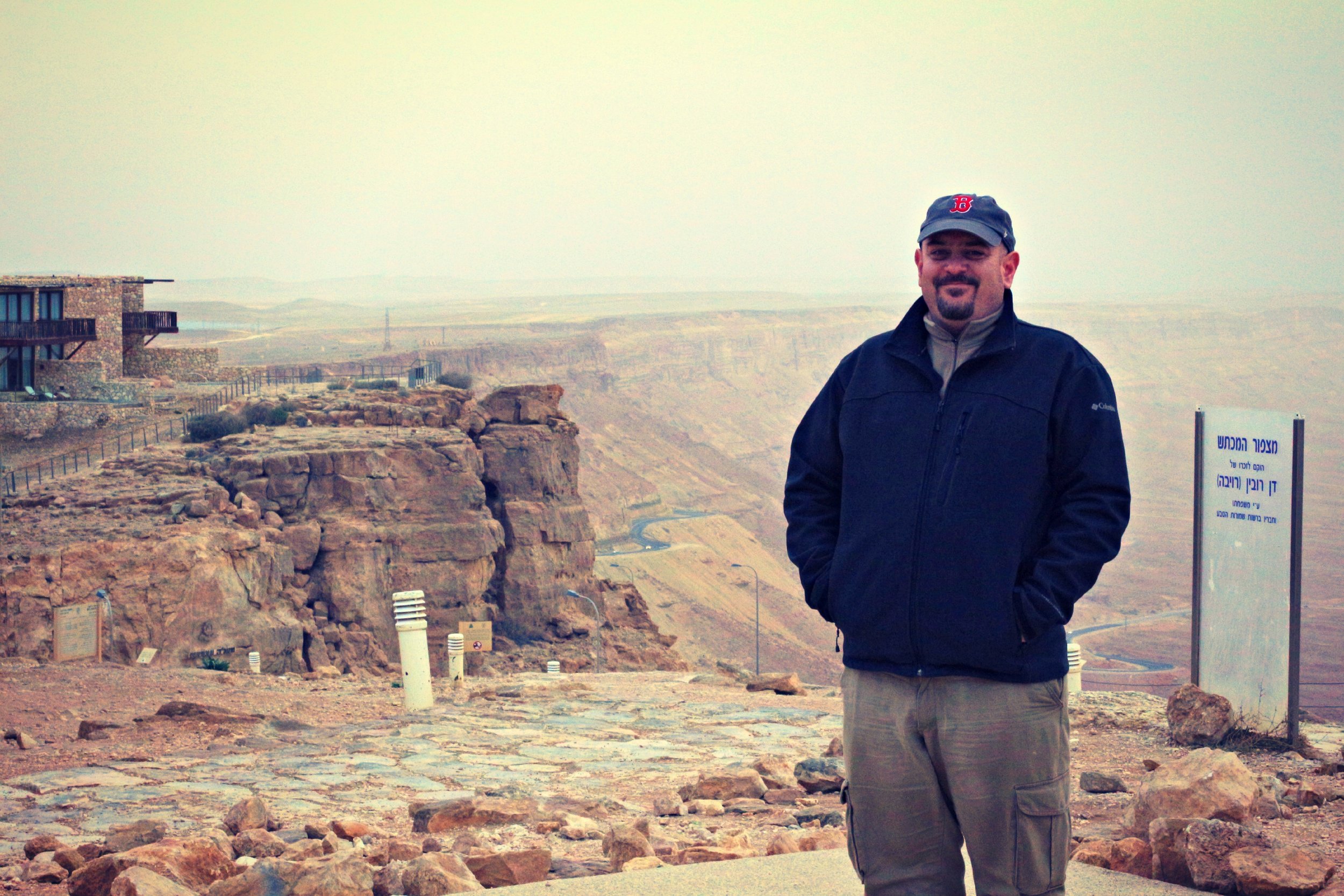
A better translation of makhtesh, perhaps, would be "erosion circle," or, "big ol hole." Geological forces created this superlative wonder some 220 million years ago.
It was pretty chilly on top of that hole in February.
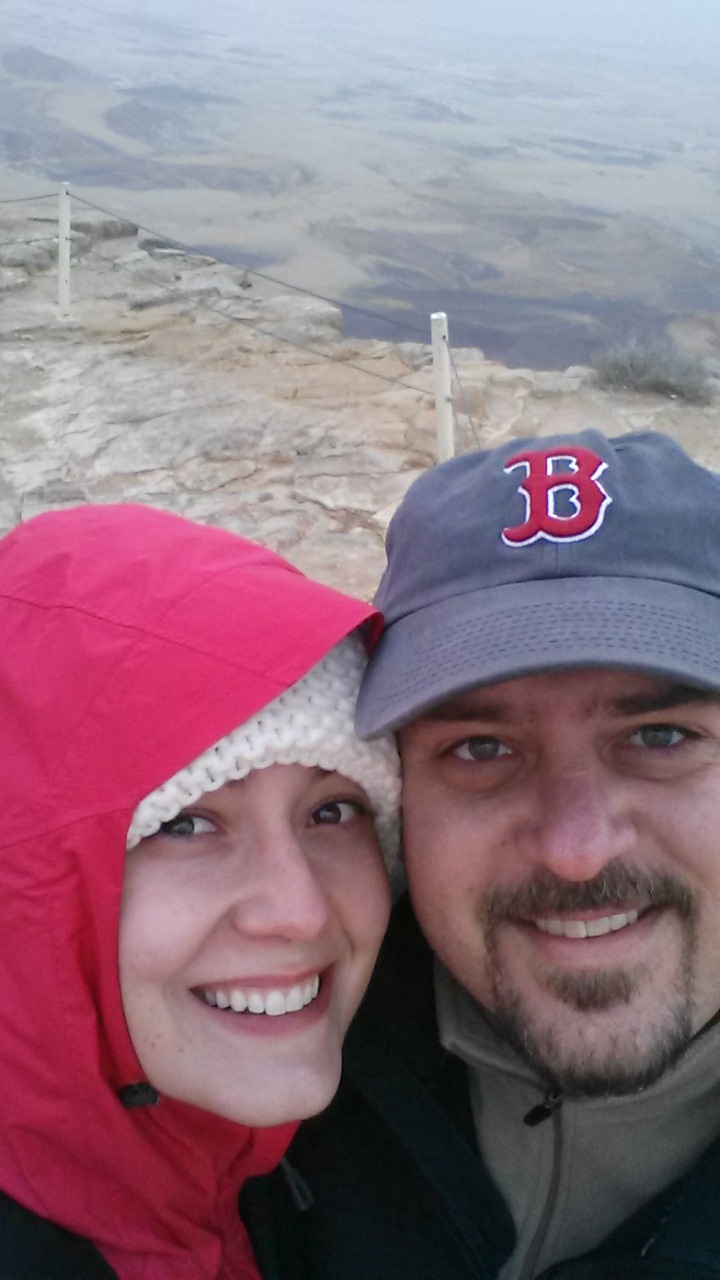
Here's a photo (from the Shalom Israel Tours website) of the hole on a better day.
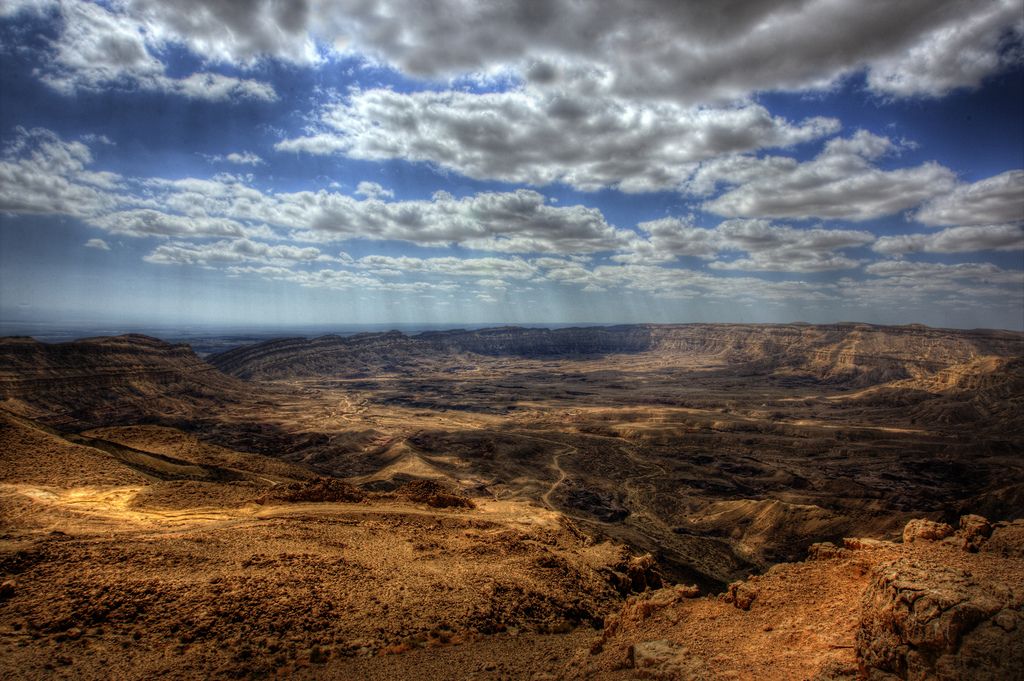
We stayed at a desert-hostel-camp rather chillingly called "Silent Arrow." The place was so hipster that it had an ironic jacuzzi.
It also had a friendly owner and volunteers, and a great vibe. We stayed in one of these tents:
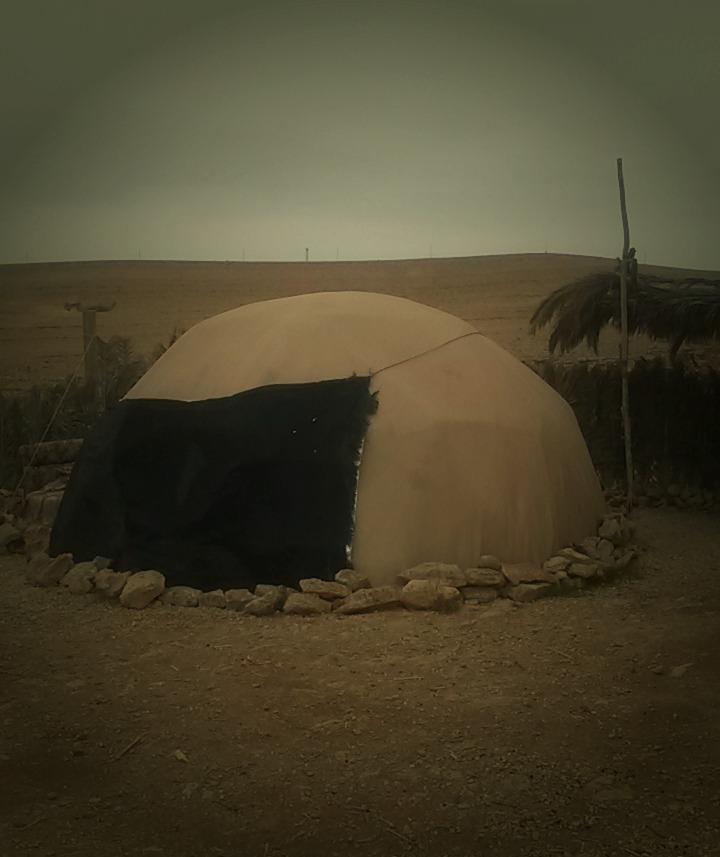
wadi qelt
The next weekend, we decided to do some hiking in one of the longest and most famous valleys (wadis) in Palestine: Wadi Qelt. To hike the whole thing from Jerusalem to Jericho takes about 10-12 hours, depending on the weather, your speed and your fitness level. We wanted the gentle stroll version, so we just drove around until we found an entrance (we knew because there was a tour bus, a camel, and some bedouins) and started walking around. We started at the top of the wadi. By the way, my vision is that I can always get my dog to look at the camera. Reality:
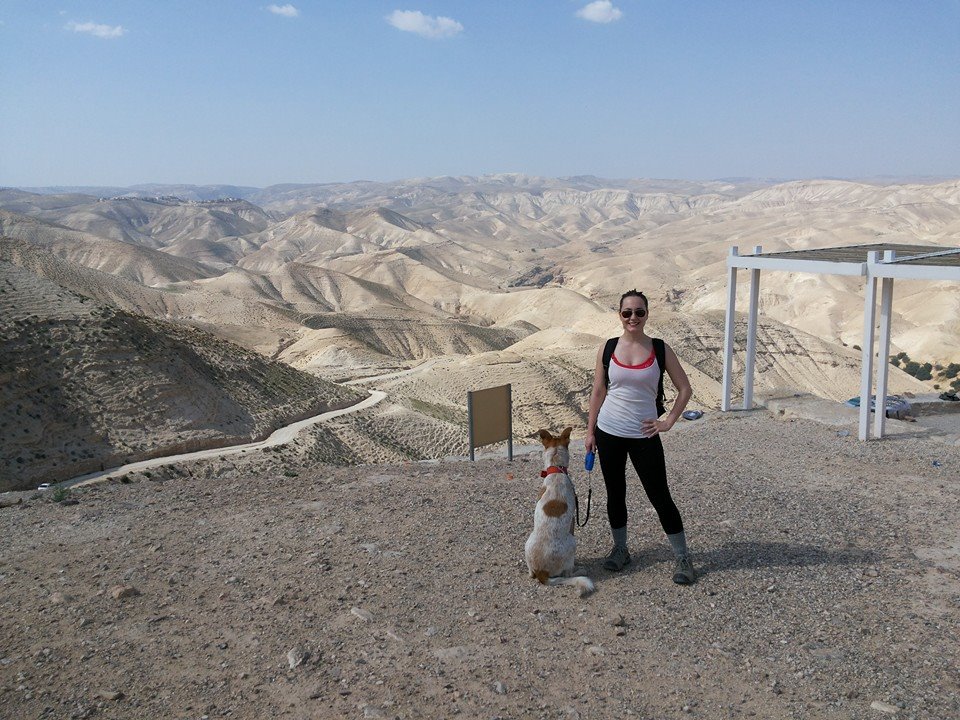
After photos, we drove down into the wadi. That is, Charming and I rode in the car, and we made Jelly run behind us. She needed the exercise.
Once almost to the bottom of the wadi, we got out and hiked around. At the very bottom of the valley, we heard the delightful sound of bubbling water, and followed it to this narrow aqueduct:
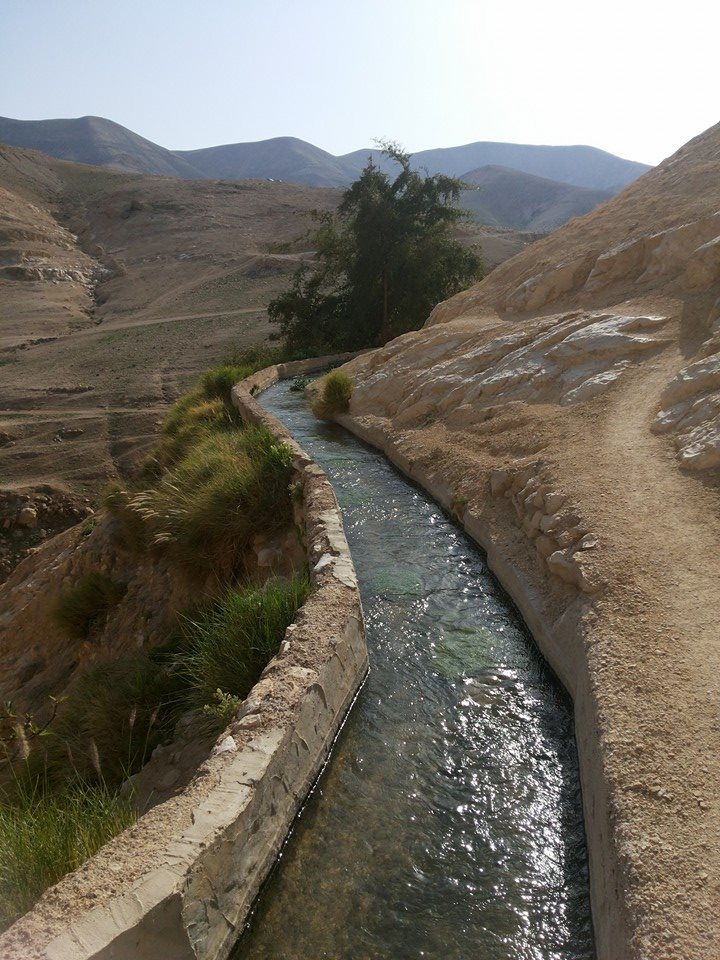
We found a green spot amidst the brown for a nice picnic lunch.
One of the most famous spots in the Wadi Qelt is St. George's Monastery. But by the time we got back to the car and drove to the monastery, we were tired. We quickly became discouraged about the amount of energy it would take to run the gauntlet of hyper aggressive bedouin jewelry sales representatives at the entrance to that section of the park. So we went home. We'll have to save St. George's for another day, or just enjoy photos of it online.
Most of the time when traveling, things don't turn out the way you think they will. Although neither of these trips turned out perfectly, they had unexpected joys.
What about you? Do you have a traveling story where things didn't turn out quite like you expected? I'd love to hear it in the comments.
How to Turn Conflict-Zone Living into a Video Game
Welcome to the first Packing Lust post of 2014! I'm so excited to get back to posting after a nice, long, good-for-the-soul holiday break.
Let me set the scene for you. It was mid December, and Charming and I were looking forward to our family's visit with warm anticipation. We decorated. Charming made a star-shaped tree topper out of aluminum foil whose star shape would later be called into question.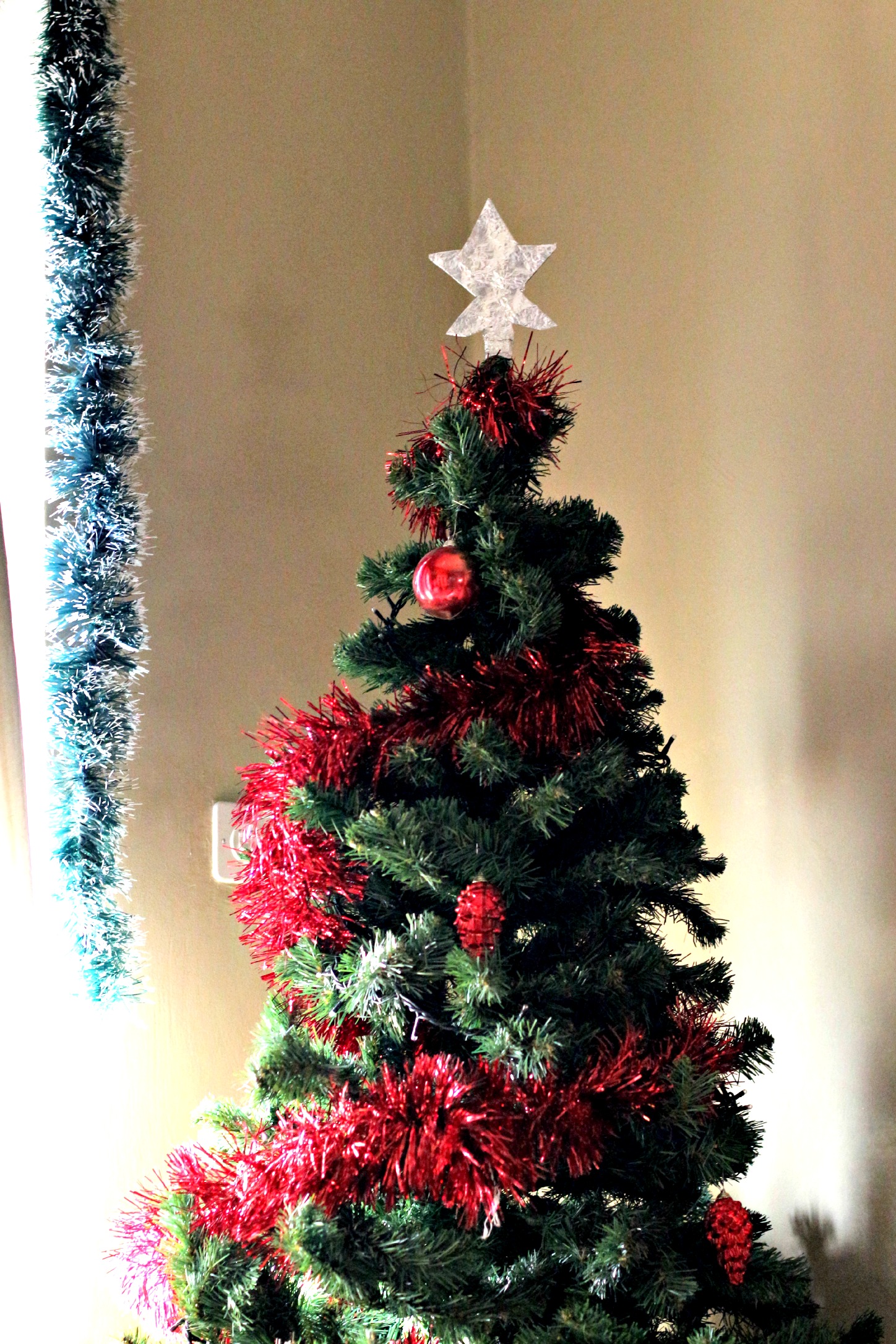
Morgan (BFF, land lady, and co-owner of the cafe downstairs) did an AMAZING job decorating the restaurant, turning its already warm atmosphere into a festive tribute to the season.
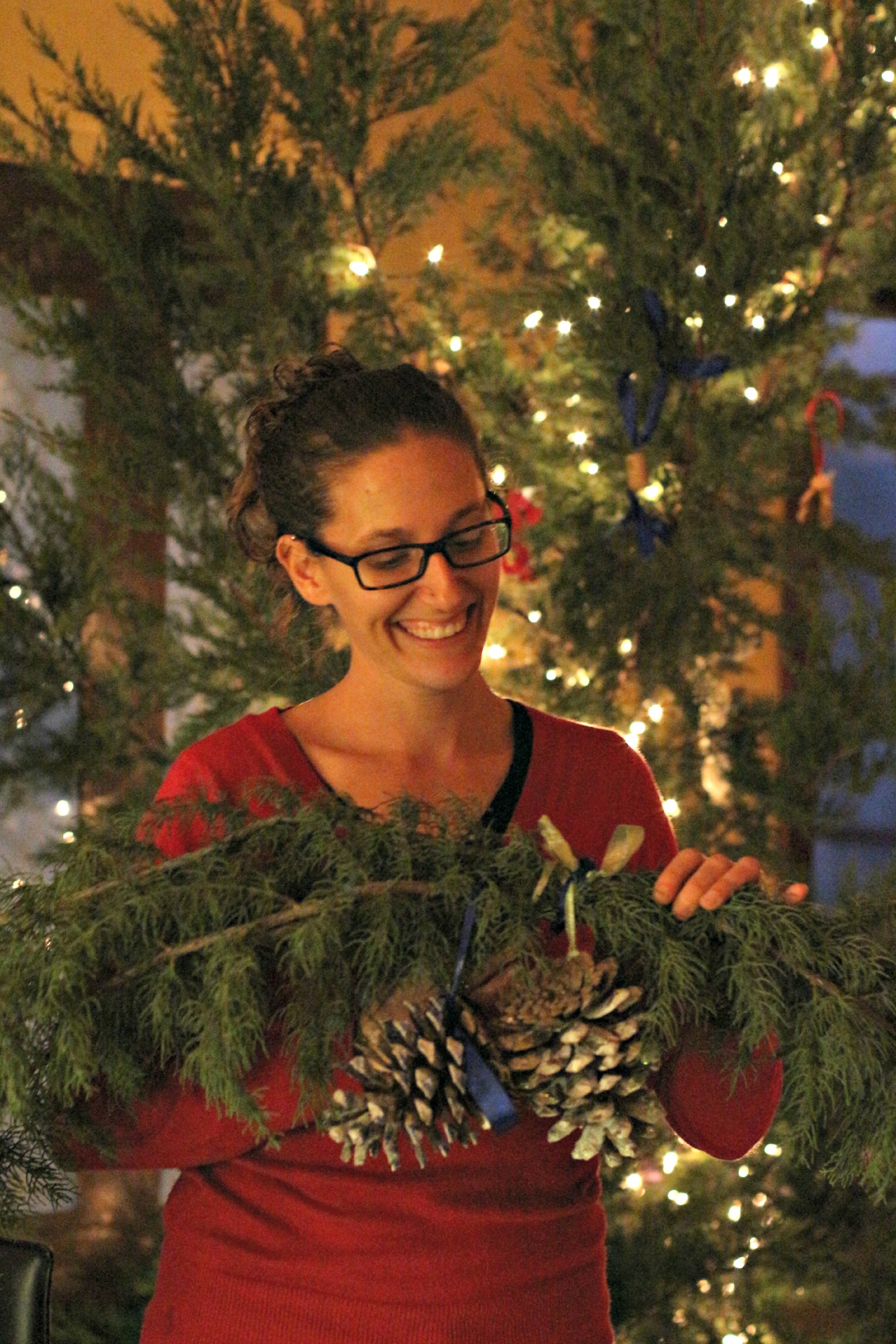
And then, as if perfectly timed, it started snowing. How quaint. I took this picture with plans to show you what I assumed would be a light, pre-Christmas dusting.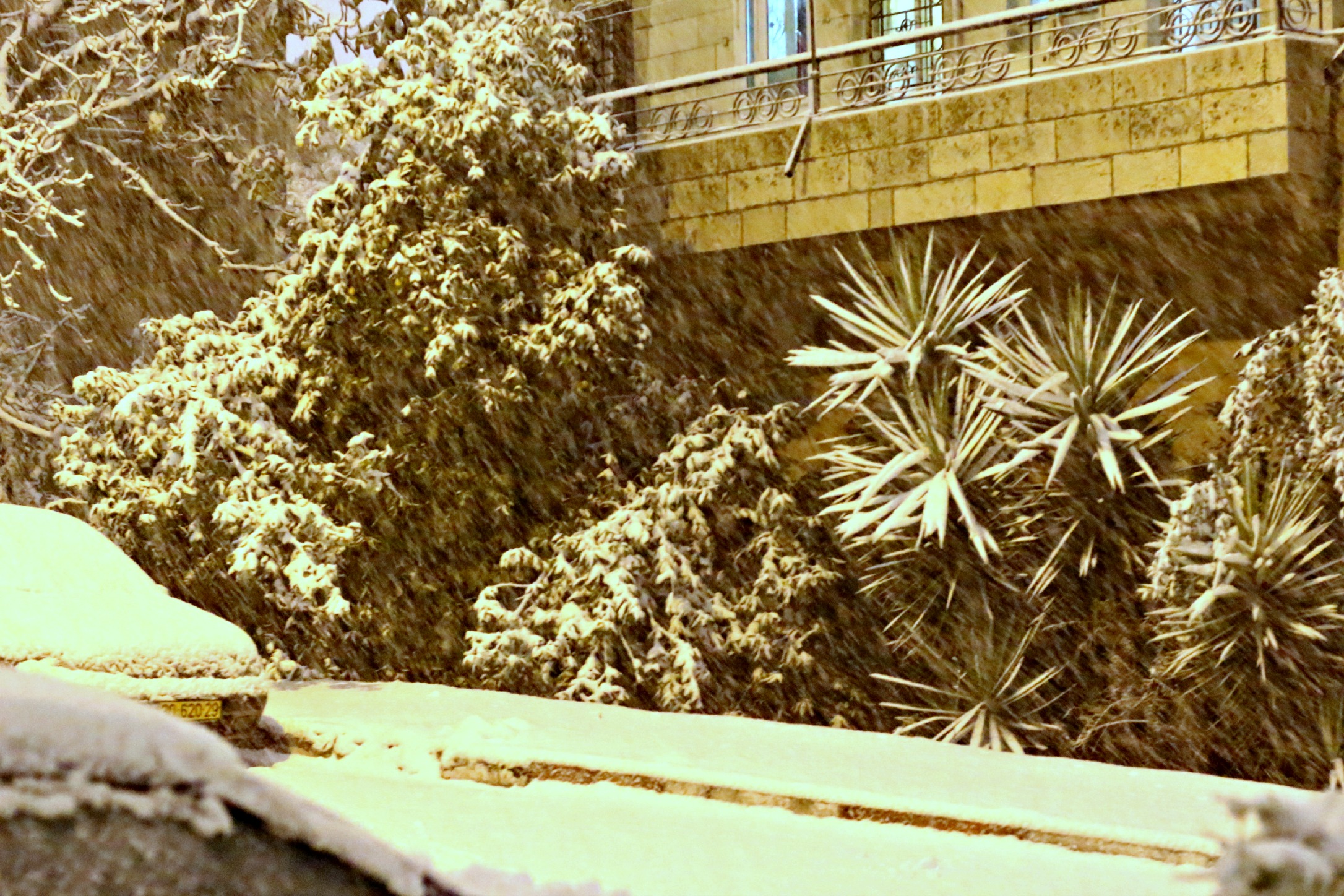
But then it kept on snowing.
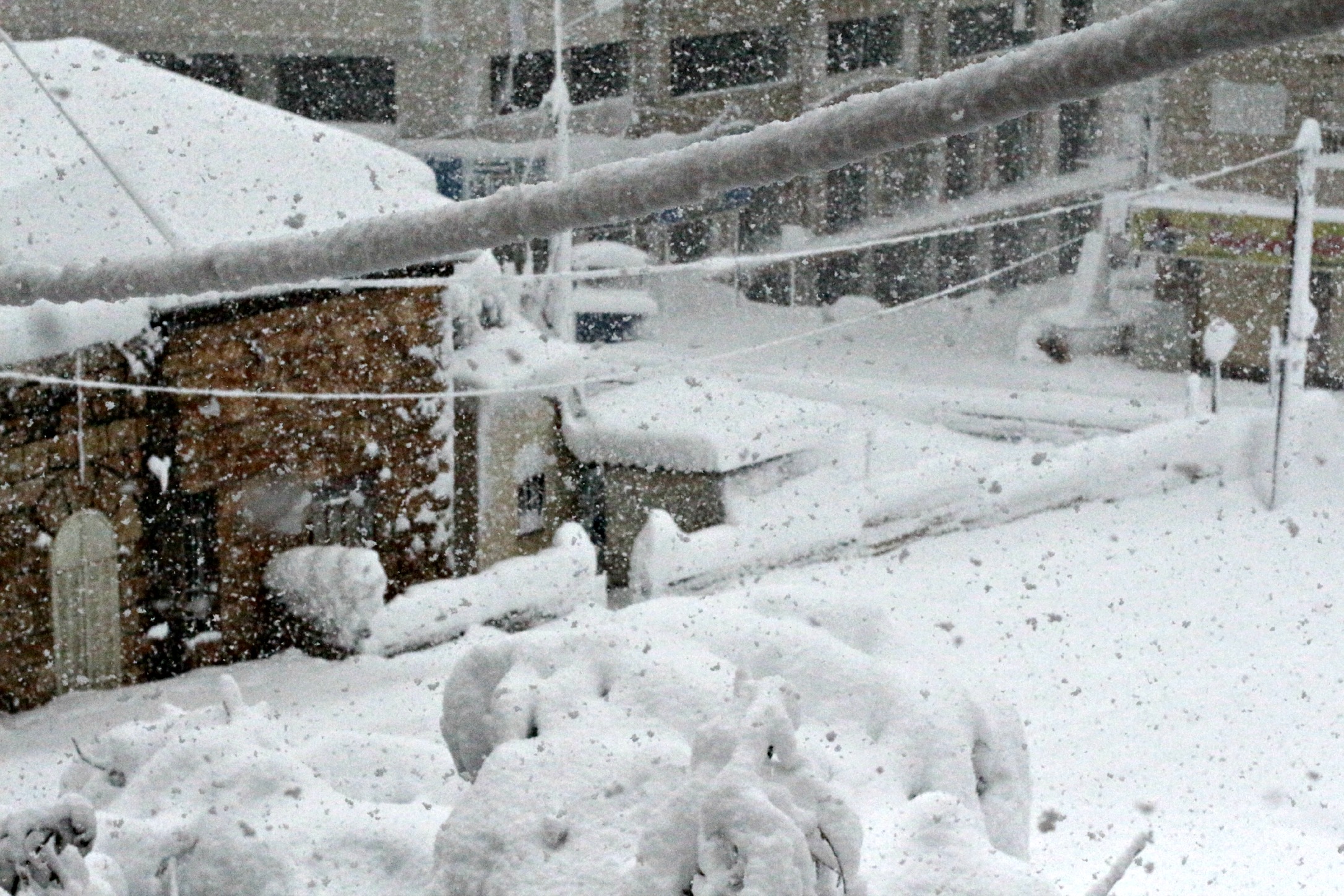
And snowing.
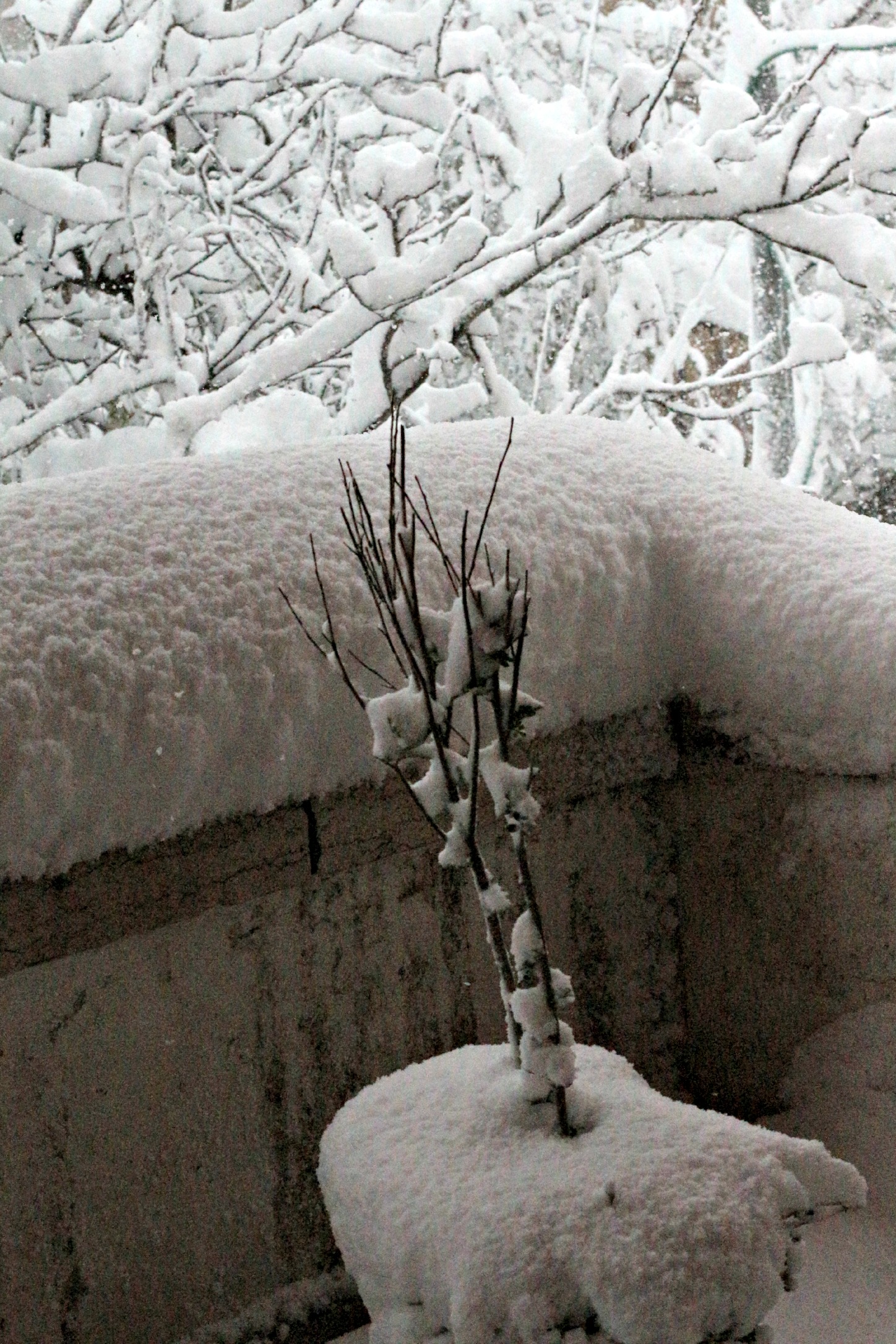
And snowing. Until we were completely snowed in. Except for Jelly, who is an unstoppable canine force.
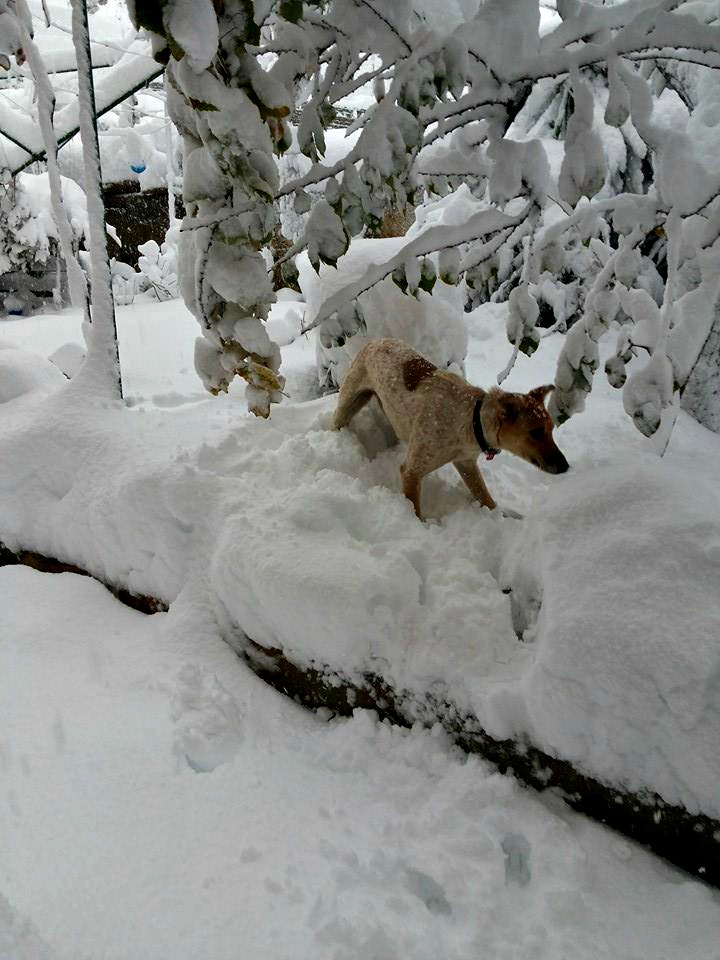
The power was out for days. Propane was running dangerously low. Charming was fielding calls from freezing employees who didn't have a way to heat their homes, but who were more concerned about the run-off flooding Gaza and displacing thousands. I spent a day downstairs with Morgan and Saleh complaining about how cold I was. They let me sit in the spot closest to the fire, piled blankets on my shoulders, and put their dog in my lap. I went out at one point and got into a life-or-death snowball fight with strange men. I survived and promised Charming (and myself) I wouldn't leave again during the storm.
The roads out of town were closed. My vision of greeting my family at the airport wouldn't come true.
When they landed at Ben Gurion Airport, they had to make their own way to a hotel in the city. Little did we know, Tel Aviv was sunny and practically balmy.
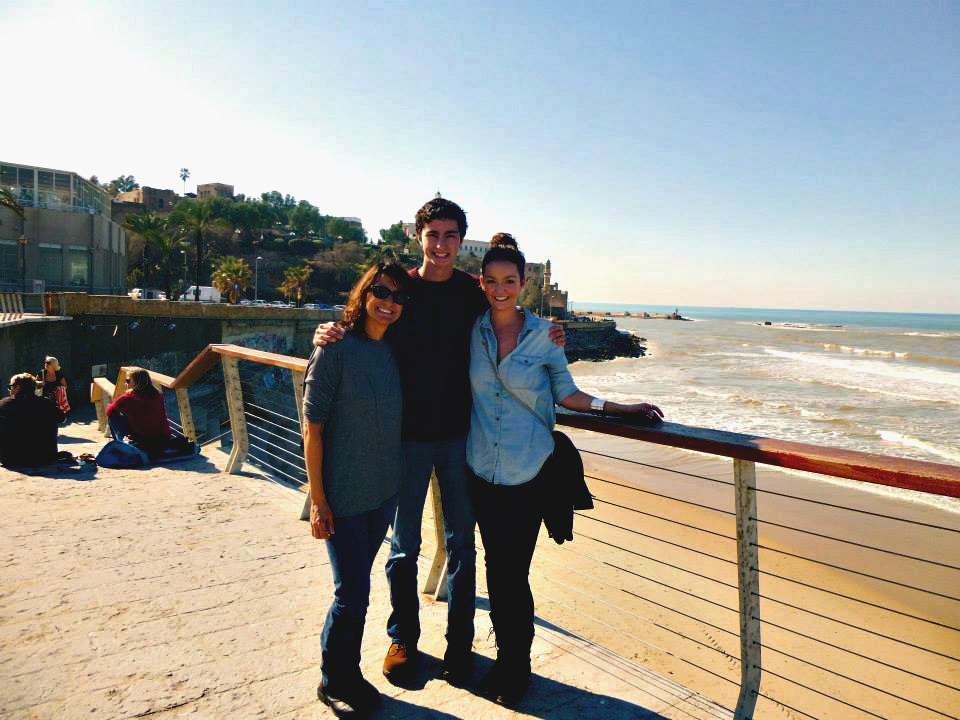
As soon as it was remotely possible, we got into a 4-wheel drive vehicle and headed for the beach. Getting out of town was like leaving the wreckage of a zombie-desolated city. Cars were sliding all over the road. At one point, I left the safety of the Jeep to make a mad dash over ice for an ATM. Armed with cash, a first aid kit, extra water and blankets, we started our journey to the coast, neither of us sure if the roads would be open or passable.
We made it. It took twice as long as normal, but once we were out of the treacherous hills, it was an easy trip. It was so great to finally see my family and enjoy a Tel Aviv coastal sunset.
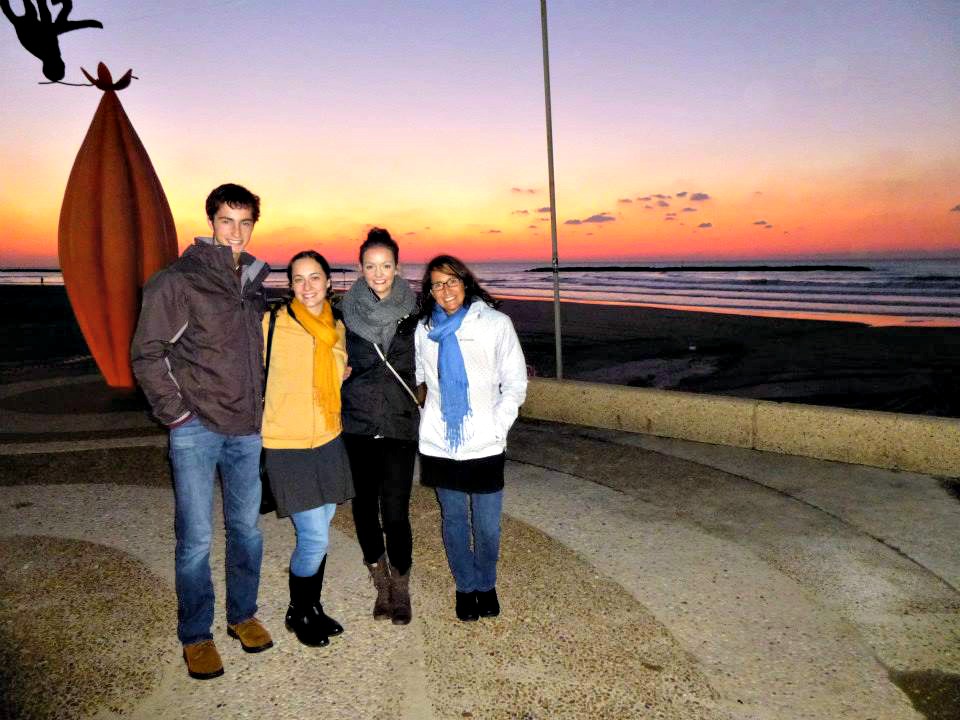
I should note now that this isn't my entire family. My dad and two more siblings weren't able to make it for this trip. Maybe next time. We had such a wonderful time with our smart, funny, loving, and very patient and gracious family. We made sure their trip included lots of good food, starting on our first night together in Tel Aviv.
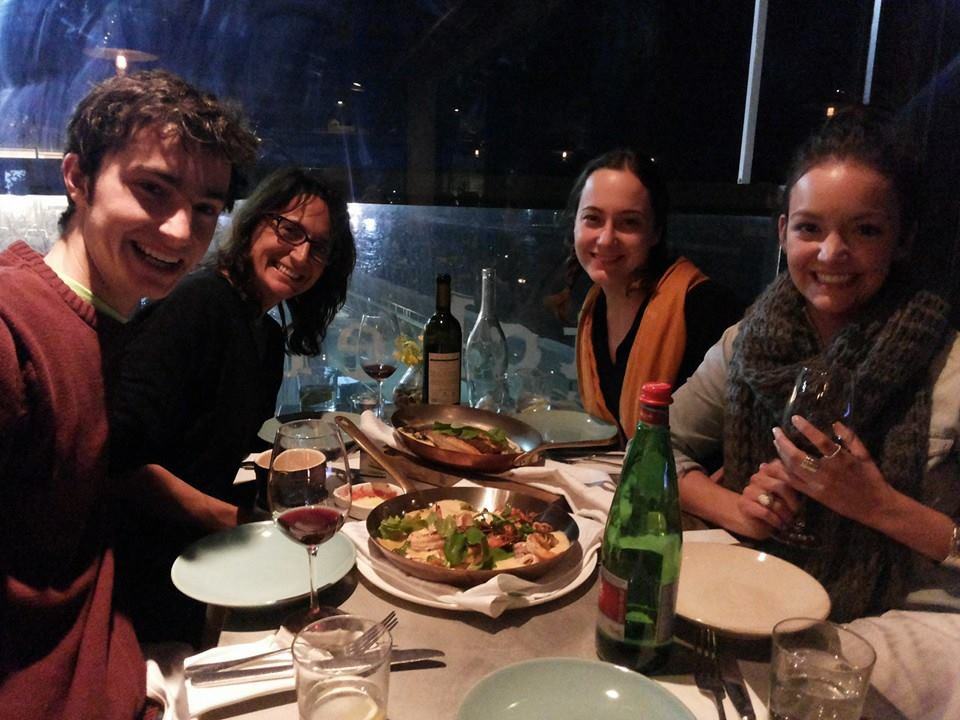
The next day it was back to Ramallah, where the snow was melting.
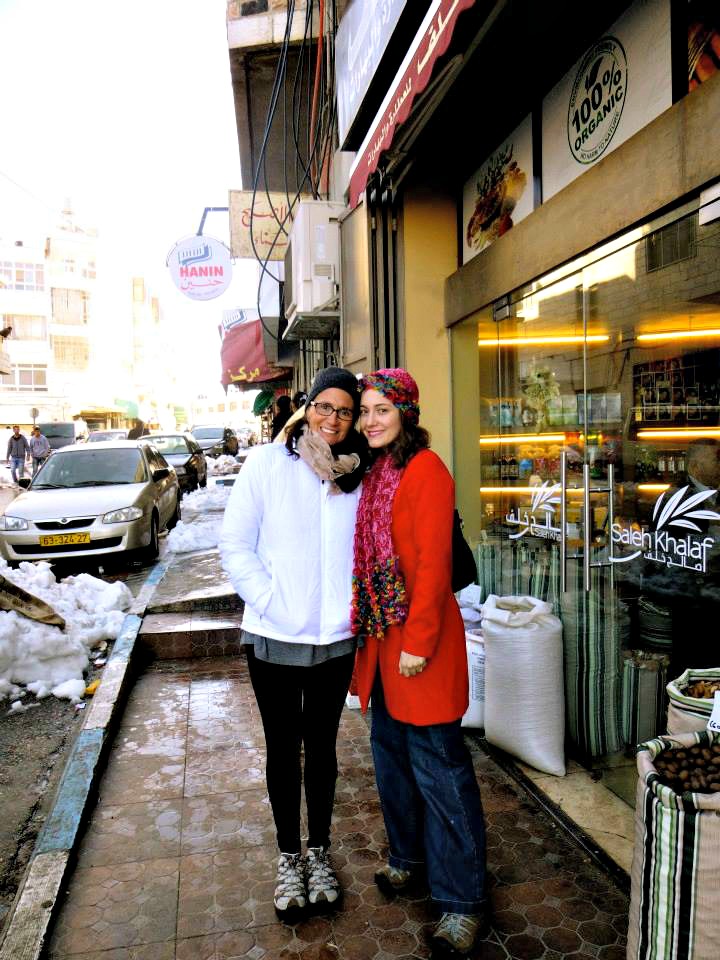
Charming outdid himself with his breakfast spreads. We ate.
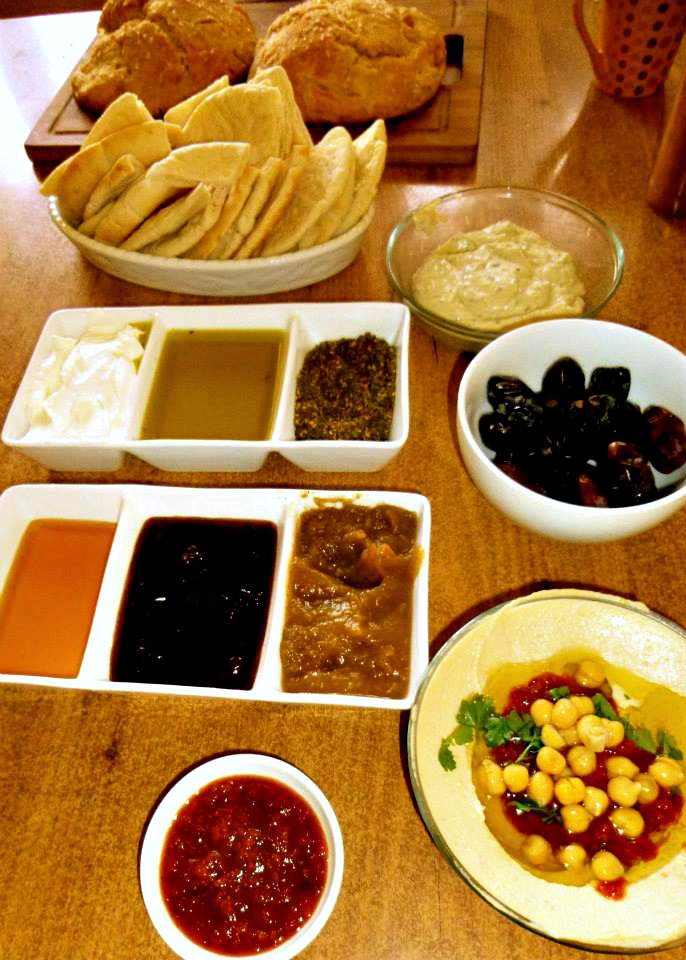
And ate.
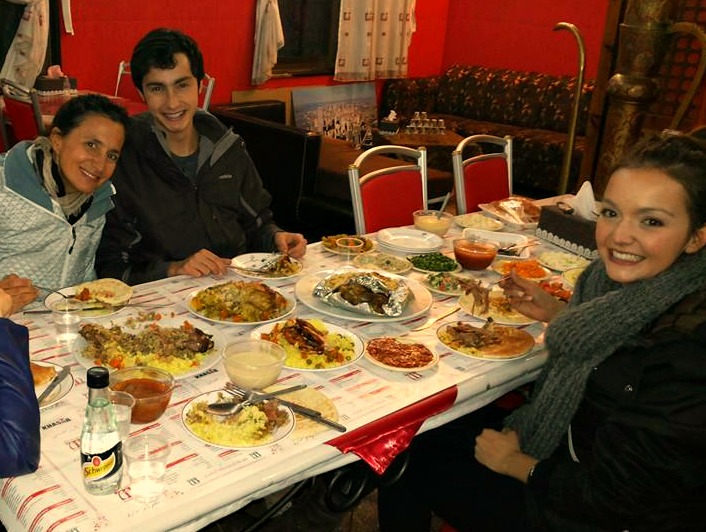
And ate.
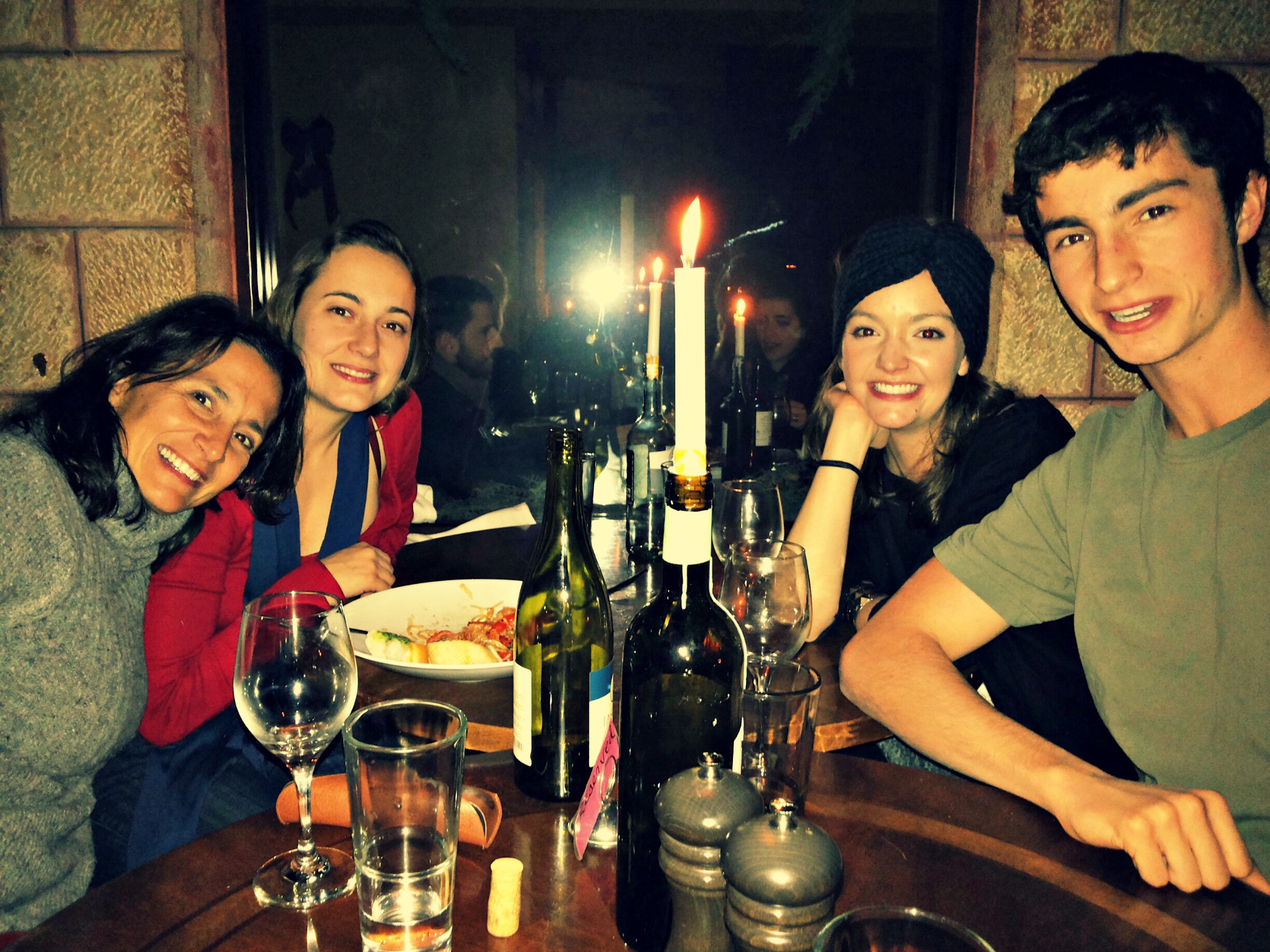
and ate.
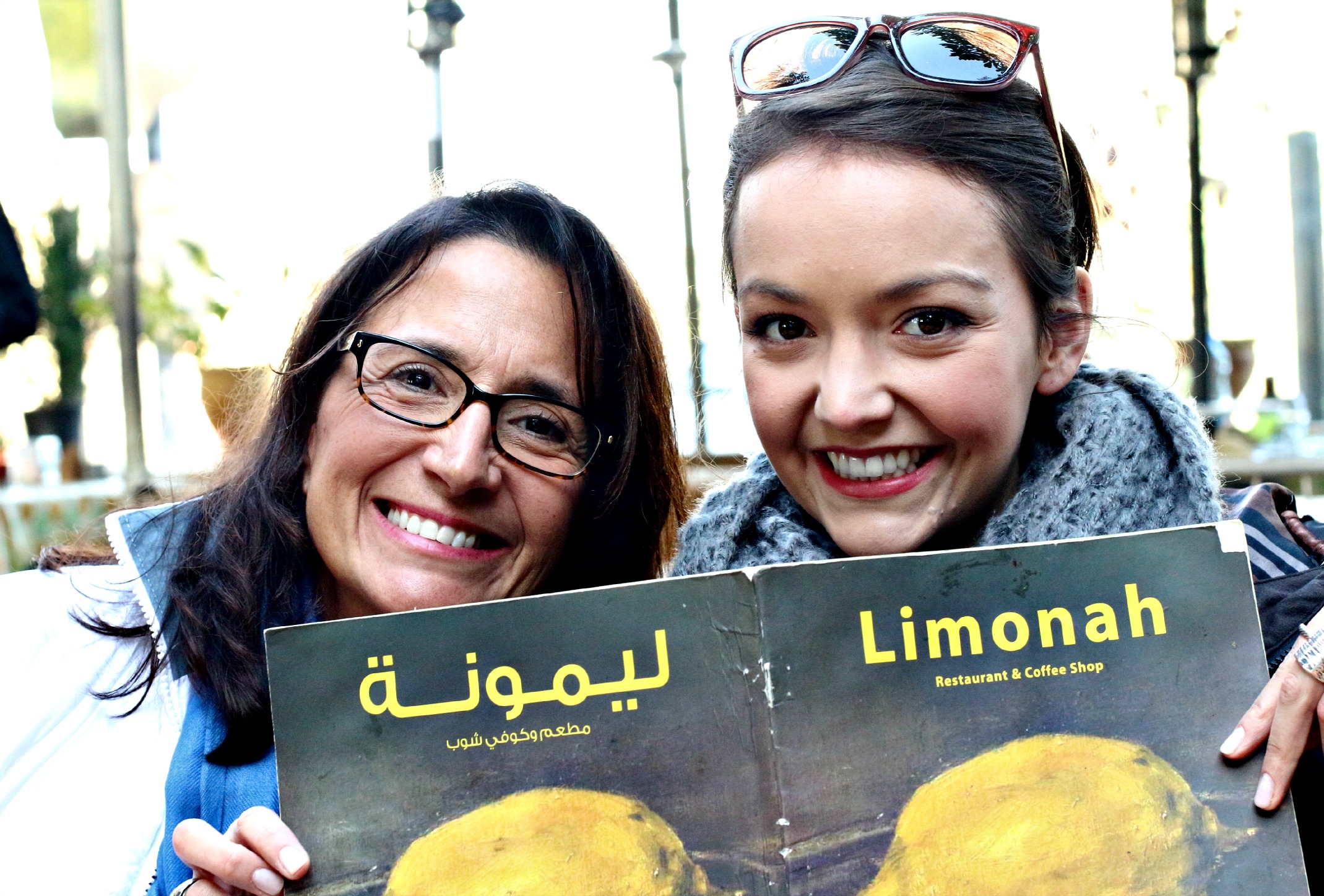
And went all around both Israel and Palestine, including an emotional visit to Hebron. Very few people were around, except for the TIPH observers. (Temporary International Presence in Hebron).
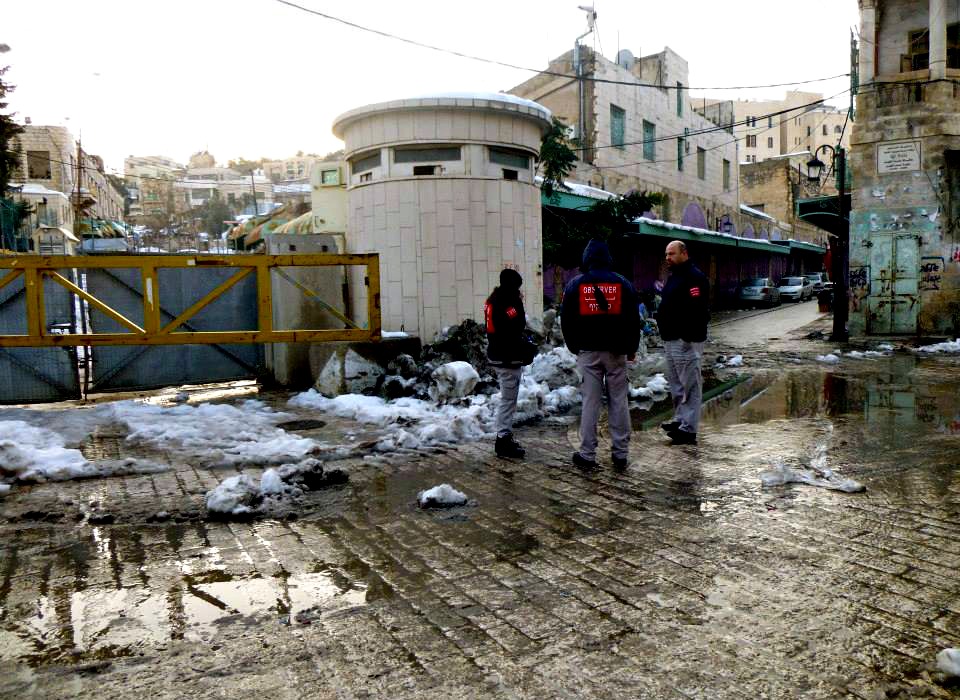
The family were good sports the whole time, turning the challenges of 3rd-world living into levels 1-5 of a video game. Level one being getting through passport control, and level five being a moment in Hebron when, upset Charming hadn't tipped them enough for their (unrequested) services, a huge gang of boys surrounded our vehicle and tried to trap us in the parking lot they had lead us to by closing the gates. We escaped our would-be captors by a very narrow opening. Perhaps our good luck was due to all the holiness, including a trip to the Holy Sepulchre in Jerusalem and the Church of the Nativity in Bethlehem.
Here they are stooping low to go in the door that was made small to protect the Church of the Nativity from marauders on horseback, and presumably, tall people.
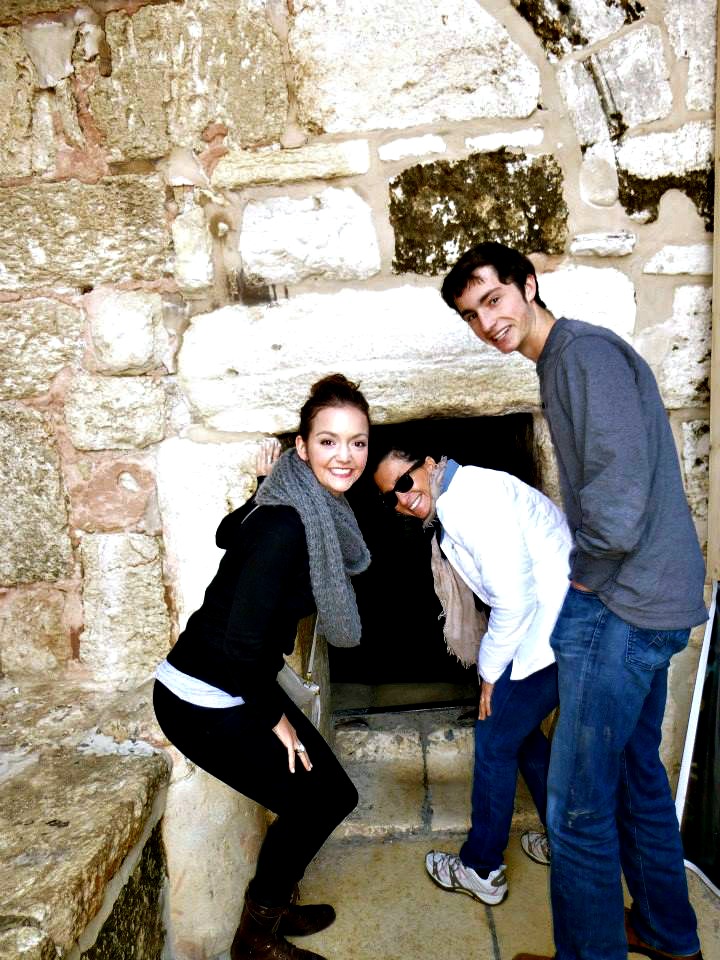
We took them out to Ein Kenya, which is a beautiful spot of nature near Ramallah, and home of Juthour Arboretum. We got our exercise, and my mom, brother, and sister managed to hang out looking like models for sunglasses and active wear.
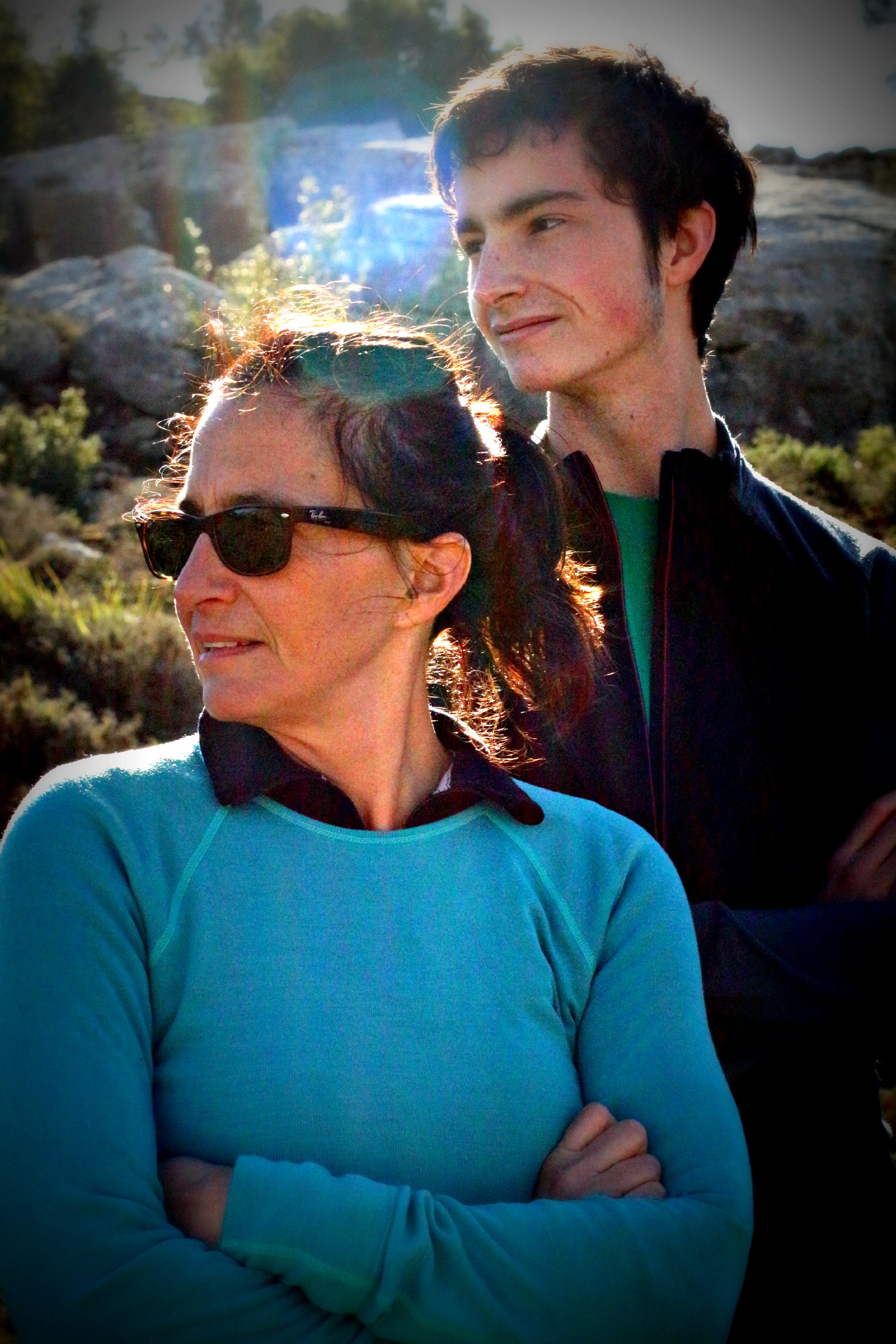
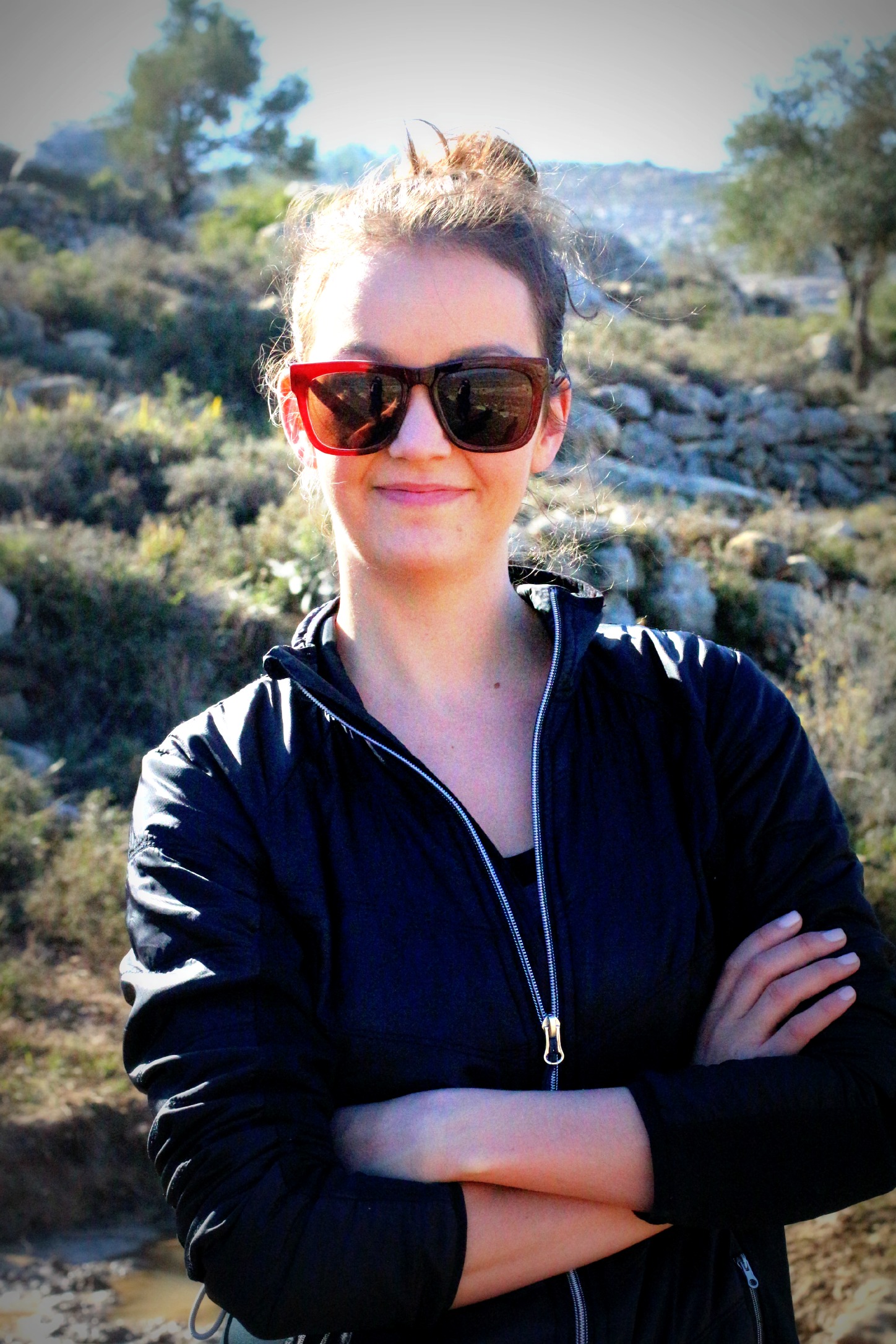
We went to Jericho and on down to catch a view of the Dead Sea.
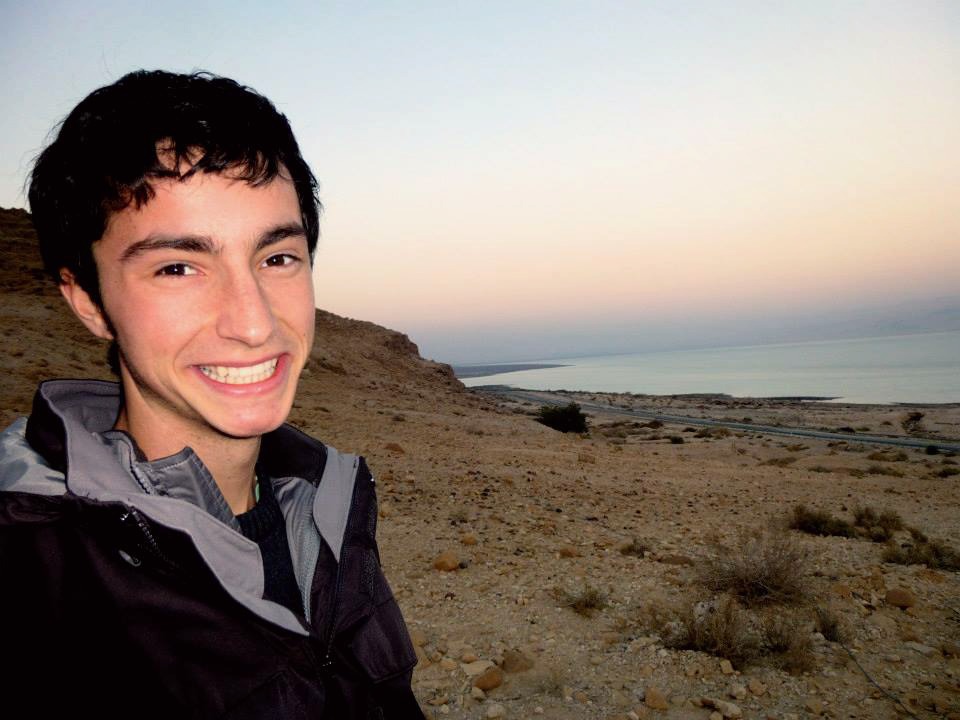
The trip gave me the opportunity to do some Gensplaining. I love pretending to know what I'm talking about.
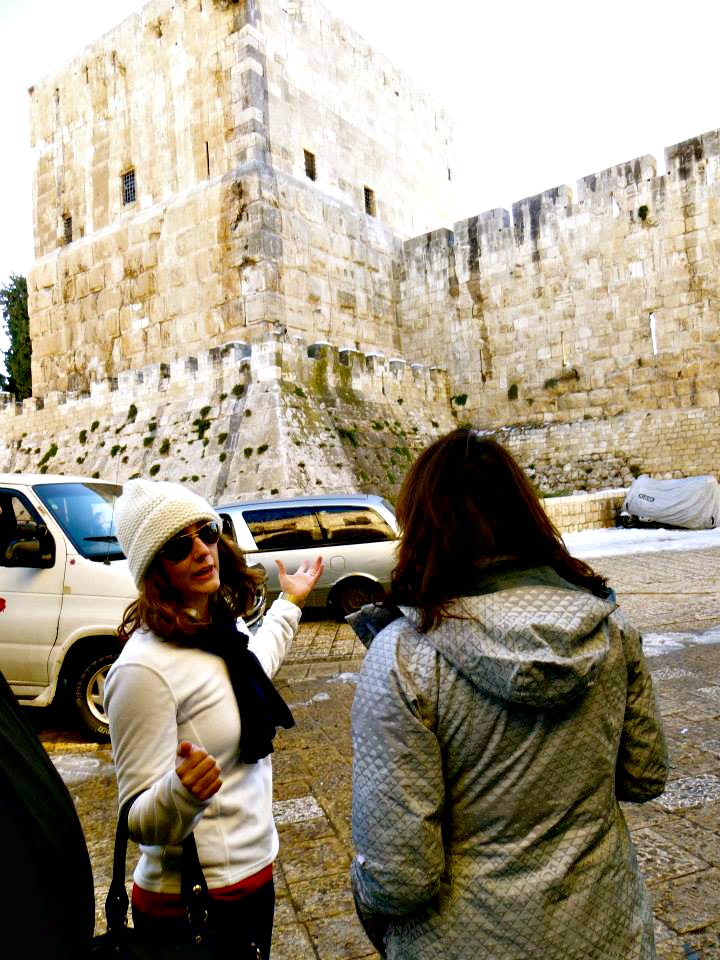
Prince Charming got to do some tour-guiding as well. It was a pleasure when our visitors were so open-minded, curious, and eager to talk about the joys and challenges of the region.
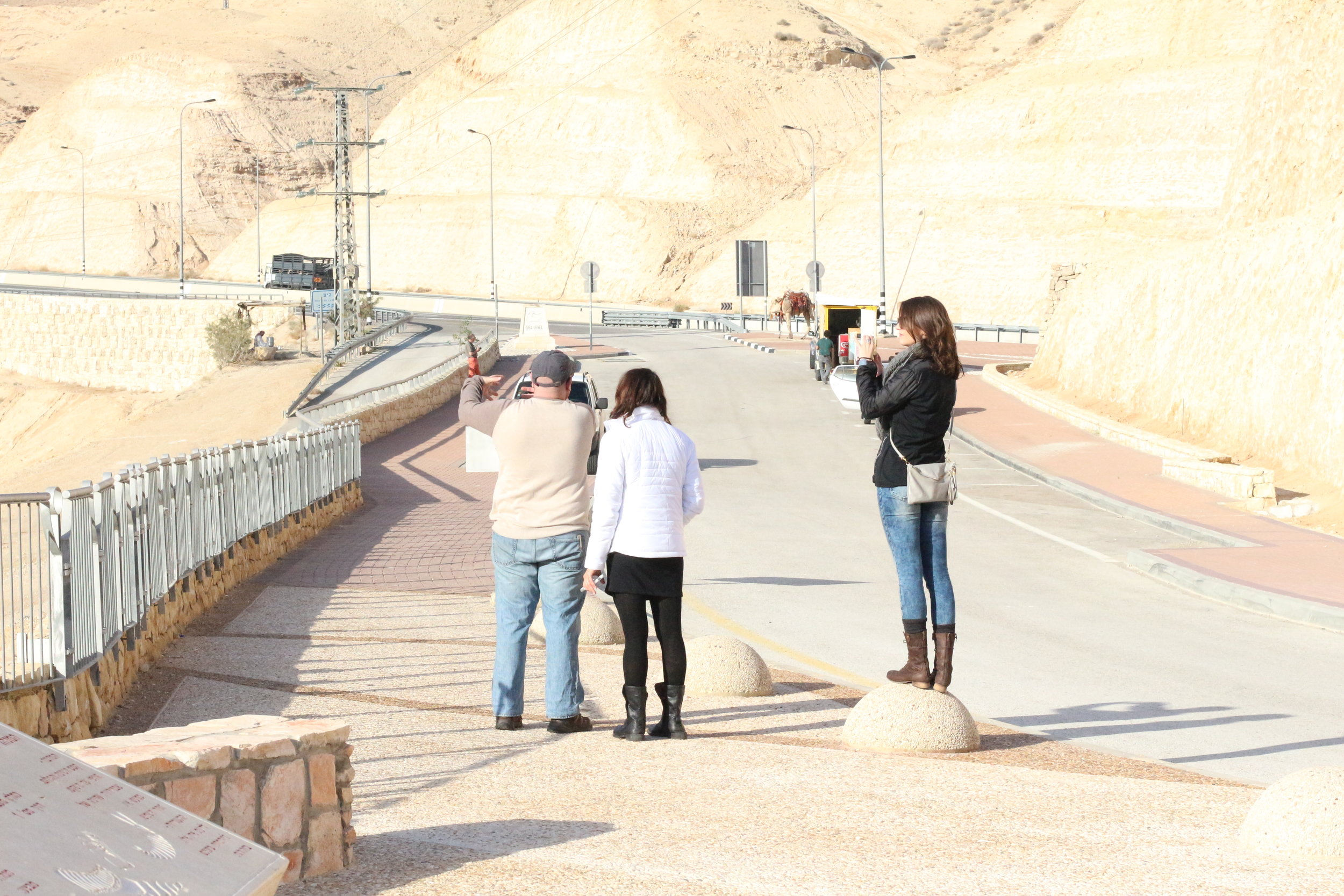
Seriously, family, your visit and wonderful mindset rocked and made every minute fun.
I thank all three of you for being intrepid & adventurous,
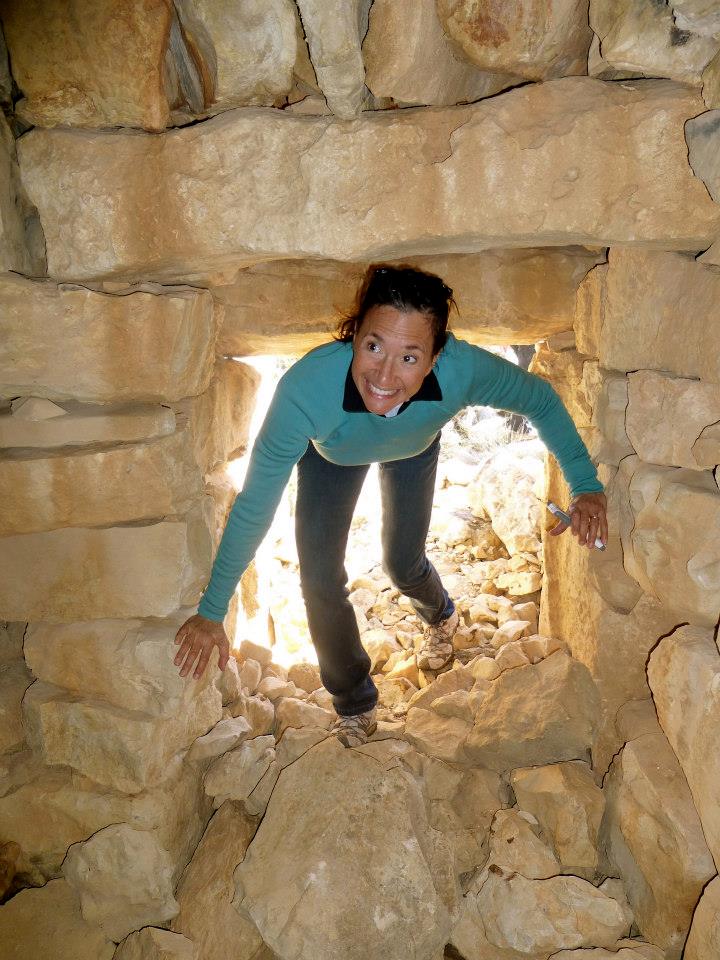
positive and resilient in the face of obstacles and setbacks,
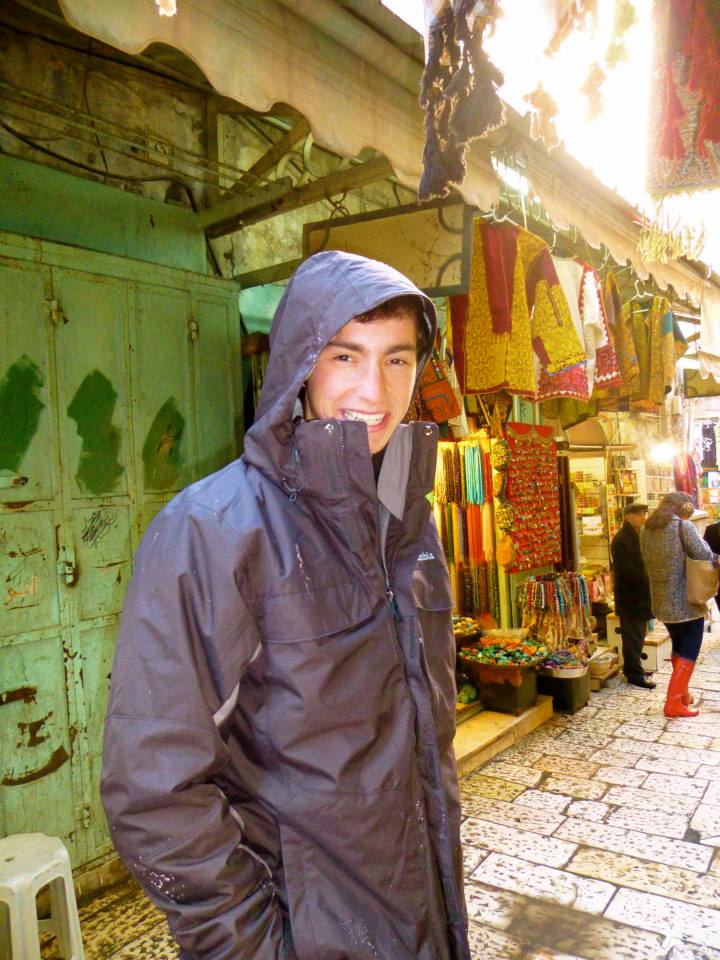
and extremely stylish and radiantly attractive.
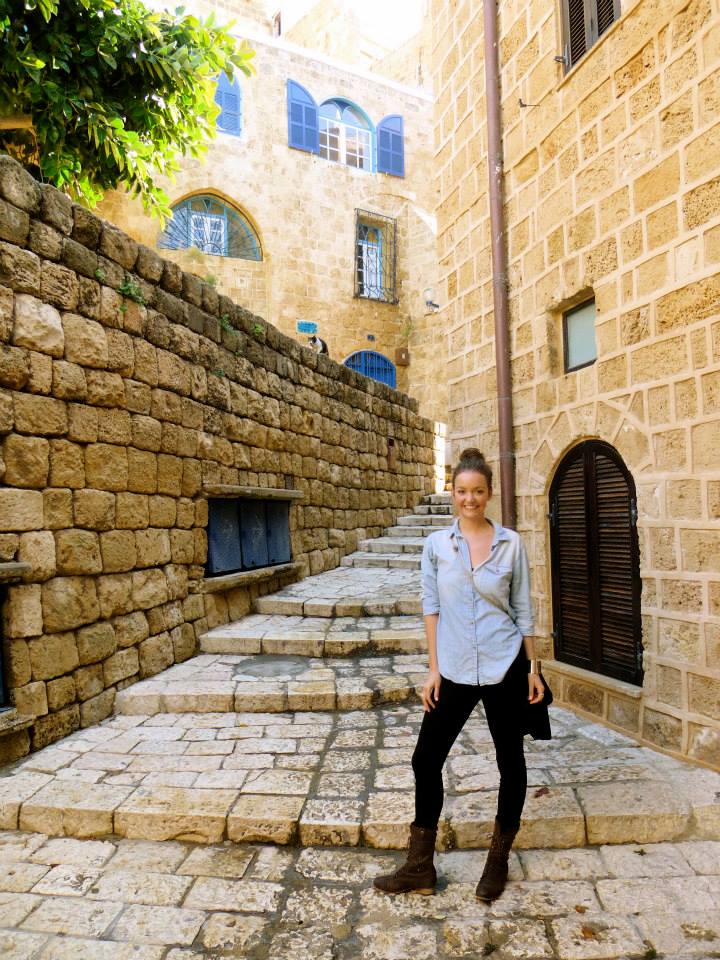
I was so sad when you packed up to leave.
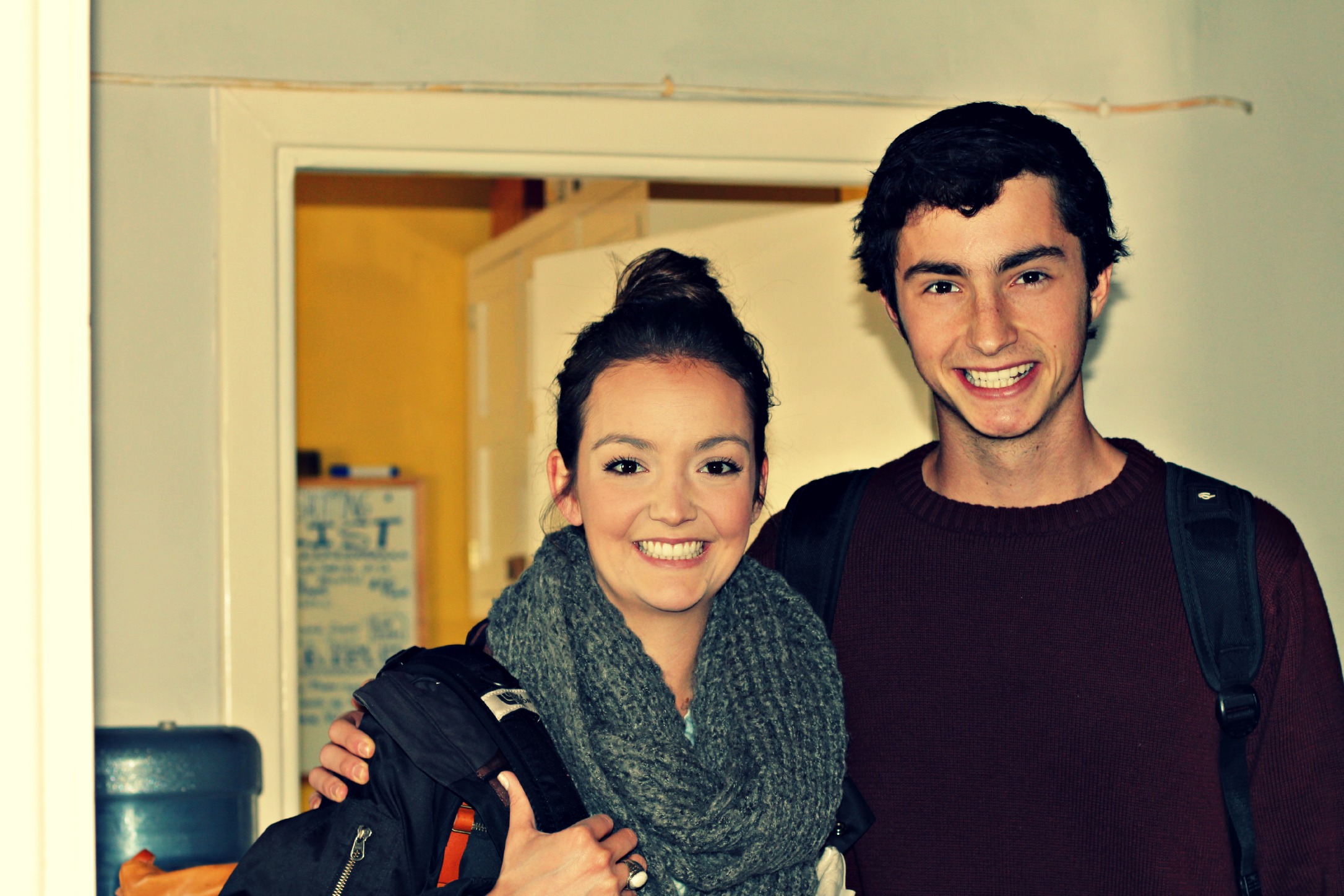
We love you!
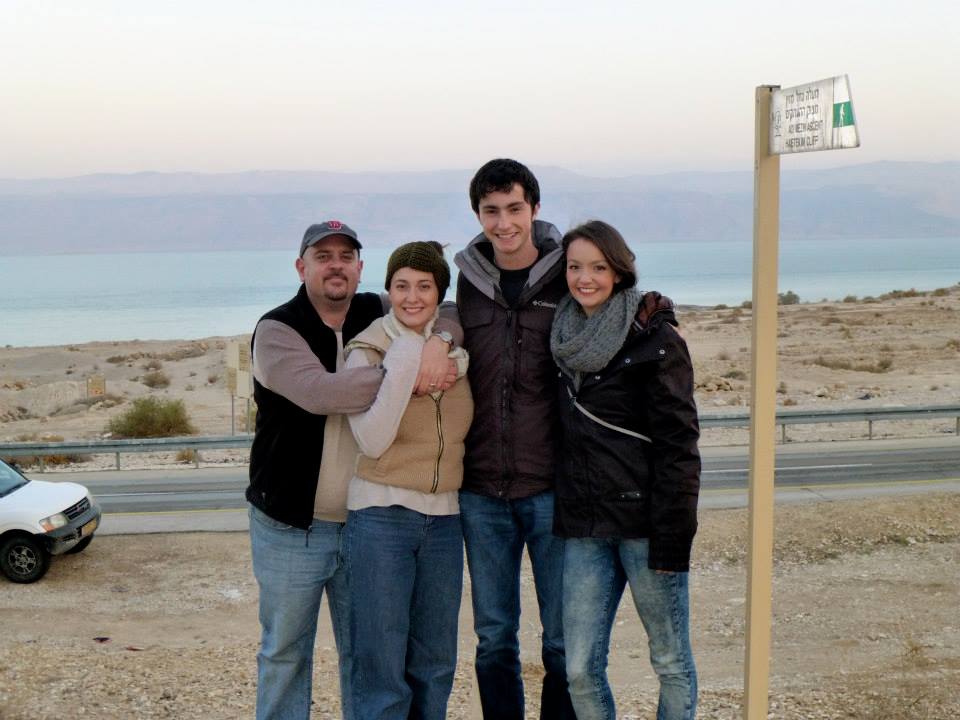
Genghis Khan Golan
We Came, We Saw, We Ate Chocolate
 Our planned road trip for this vacation.
Our planned road trip for this vacation.
The Packing Story
Hitting the Road
Heroes and Villains
 Sunday, May 26, was a lazy day for me and Prince Charming. We had some movies lined up to watch, and the first was a documentary called Five Broken Cameras.
Just a couples hours later I've still got post-cry shakes. However, I also feel very glad that this documentary exists, because the end is hopeful, and the story is so human.
Sunday, May 26, was a lazy day for me and Prince Charming. We had some movies lined up to watch, and the first was a documentary called Five Broken Cameras.
Just a couples hours later I've still got post-cry shakes. However, I also feel very glad that this documentary exists, because the end is hopeful, and the story is so human.
It's about a Palestinian man, a peasant who lives off the land, and gets a camera to film his kids childhood. His youngest son is the cutest little guy ever, and I fell in love with him over the course of the documentary.
The story is told through the five cameras he gets in succession, each after the last one is broken, often by a flying gas canister or related accident. Through these five lenses, we see what the camera saw in its life, and we see the story of how each camera met its end. Of course, what we are really seeing is the story of the families in this Palestinian village that is on the edge of several Israeli settlements. We see the wall go up, and we see the olive trees burned over and over by the settlers at night. We see the soldiers come to the homes at night to take children. We see people tear gassed, we see them throw rocks, and we see a man committed to nonviolent resistance gradually become scarred and angry as he sees what is happening around him. We also see, most hopefully, that he is always trying to heal in the best way he knows how.
I loved this film as a reminder that we must heal ourselves and each other, and to heal we must, like a doctor, first see the wounds. We must be witness for each other to the atrocities that take place in our lives.
Once you've seen the wounds in Five Broken Cameras, go watch another film. This one was part of a coaching training program in leadership, indirect negotiation and strategic intervention. Anthony Robbins has been studying what makes people change their lives for a good for many years now.
He had a conference on leadership planned on September 11, 2011. Instead of canceling after the terrorist attacks, he somehow got people to stand up and really speak the truth about how they felt about the event. There was a Muslim man who got up and said "this is retribution." Well, of course many people wanted to attack him, and even tried to there at the conference. One man, an Orthodox Jew with relatives in the West Bank (fundamentalist settlers - the kind of people who burn Palestinian olive trees) got up and offered to talk peacefully with the Muslim man.
Robbins led an indirect negotiation between the two men ON 9/11 itself that transformed both of them. They formed a Jewish-Muslim organization for understanding and peace.
I laughed and cried watching that film. It's called Negotiating Conflict: Leadership in Times of Crisis. According to this website it's available in full-length for free, although you can watch a 7 minute summary here.
We all wonder how peace will come to the Middle East and other areas of ethnic and religious conflict. The sorts of transformative moments shown and experienced by the viewer in these two films is our only hope for peace.
And now may I bring you from May to July?
A few days ago:
"What do you think happened? It had to be something tragic." I looked at my American friend, who has lived in Palestine for much longer than I have.
"I don't know. Something beyond tragic, I think," she said, looking at me intently.
I didn't know exactly what she was getting at, but I did know that is not what you say when someone loses a child. Losing a child is tragic, and one of the worst things that could happen to a parent. I could think of few things beyond tragic.
We were talking about a mutual acquaintance we both saw on occasion, ____ , a woman who lives in a nearby village. We had both known _____ to be cheerful, with a quick and genuine smile. Although she spoke little English, I enjoyed when I got to see her, since she would always communicate through her shy, dazzling smile. Knowing that she was a poor, kind, and intelligent woman who worked hard to support her special needs daughter and her dissolute husband only made me admire her more.
The last time I saw her, she tried to smile as usual. And her mouth moved. But her eyes failed to hide a pain that was too big to push behind a smile. I am haunted by that telling look - her attempt to smile as I said goodbye to her.
"I think someone must have done something to her child," my American friend said.
At first, I was confused. But then I realized -- "If her child had died, she would have just told us."
"Yeah."
The next day, my American friend looked rather pale, and told me she'd seen an article in the paper. A 14-year old girl from a nearby village had been gang raped by a group of seven men, each between the ages of 17-26.
I grimaced. "That's horrible."
"Have you put it together yet?"
"You think… it was ____'s daughter?" I didn't want to believe it.
"It must be."
"How do you know for sure? We have to find out."
How do you call someone and ask, in imperfect Arabic, if their daughter was recently gang raped? I don't know, but my brave American friend managed it, and later confirmed that the victim was indeed ____'s daughter.
My friend also told me that this group of men had gang raped before. Yet that time, each of the families of the men had paid off the victim's family to not press charges.
The story showing up in the newspaper meant ____ had refused to take a bribe from these seven families and was pressing charges.
I likely don't know all of the ramifications of that decision, but I do know that this poor woman is turning down much needed money to support her daughter and fight for justice. She's making a decision that some other parent her in village did not make for her little girl. She's a hero.
I also know that means there are seven families in her small village who want nothing more than to shut her up. Seven powerful families who are now aligned as her enemy - this poor woman whose special needs daughter was lured into an apartment only to be beaten and raped by their sons.
How can we help her? We are working on connecting her with a lawyer specializing in women's legal aid. My hope for her is that, if she wants it, she can gain refugee or other status that will allow her to leave with her family to start a new life in a place where her daughter won't spend the rest of her life fearing the seven men who will likely not be brought to justice. Then again, we can hope for justice.
And you know I wouldn't leave you without a way to take action - to do something to help ____. The Women's Centre for Legal Aid and Counseling is reaching out to support her. You learn more about them here and donate here.
Bulldozer on the Beach
Also, a real live Scot.
So with two Americans in the front, a Scottish lass named Kate, and a Palestinian habibti in the back, we set off for a beach we'd never been to called Herzaliya.
Now, normally, I'm prepared with my realism and slight cynicism about traveling to and fro between Palestine and Israel. It's always hard. We always get lost. There's always traffic. Checkpoints suck. Blah, blah, blah.
But lately, things have been easier. We've been making local friends who've helped us through the more difficult parts of life here. We sort of know where things are, and when we need to avoid certain checkpoints. It's about time, since we are just a few months away from the one year mark.
So as we rolled up to the checkpoint, I made a swaggering comment about how I'd bet money that the guard would just wave us through. I was willing to put money on it. Seriously.
No ma'am. They asked for all our paperwork, and our Palestinian friend pulled out her I.D. and her special card from the UN giving her permission to enter Israel.
Holding our passports hostage, they told us to pull the car over, and open its cavities.
Then we had to get out, and put our bags through the x-ray machine. We had to pull out water bottles and for some reason, our Kindles had to get scanned multiple times.
Then they pulled aside our Palestinian friend to get her alone to interrogate her. In the end, they told her she couldn't pass through this checkpoint.
What was so frustrating for me is that I'm pretty good at negotiating with the teenagers who run the entry points to Israel. (Yes, it helps that I'm a white American female.) I realize that negotiating with teenagers is always a delicate and unpredictable process. And I'm aware that negotiating with teenagers who are CARRYING FIREARMS is a delicate, unpredictable, and dangerous endeavor. However, I've done it before. with success and the help of an adorable puppy.
So I asked the soldiers what was up, and where our friend could get the information that said she couldn't pass. Turns out, she needed to find out from the DCO (which stands for District Control Office or something) to find out which checkpoints she is able to pass through. At that point, I was thinking of trying the puppy method, which I'm pretty sure would have worked.
However, as I talked to the guards, the other members of my party were giving me "let's get out of here," looks, so I didn't continue to negotiate with the guards. However, I think that, given another year of experience here, I will have the confidence to negotiate more effectively with the guards. It's all about confidence, whiteness, and having a few phone numbers of U.N. representatives in one's pocket. We seriously needed to get to the beach, and I was and will be willing to negotiate with armed and brainwashed teenagers both now and in the future.
But the story doesn’t end there. We turned around and drove maybe three more hours, getting lost and irritated as our planned time in the sun dwindled. We finally made it to another checkpoint where we had to get out again, and went through the same x-ray process, right down to having to scan our Kindles twice.
This time, they let all of us through.
But then we got lost again. Charming simply gave up, his foot cramping from driving so long. Our normally bubbly and outgoing Palestinian friend felt so humiliated that she stopped talking. That left me and Kate to figure out how to get to the beach. We pulled over, and thankfully, Kate offered to ask some nearby people for help.
They gave us directions, which matched Charming's suddenly operating phone GPS directions.
We finally made it to Herzeliya beach, with just a few hours left to enjoy.
But we did enjoy them, filling up on sushi overlooking a marina.
Seriously.
This was a huge beach, and the bulldozer was just a few feet away. You can see from my body language how pissed off I am.
(Charming has decided to appear photographically on this blog. I'm so happy! This is a rather mundane photo for him to be making his first appearance in, but I'll try to add more shots that show his good looks later.)
But this was Israel, where if someone wants to plant a pole on the beach on Sunday afternoon, they are going to do it.
And fly a kite.
Jaffa Flea Market
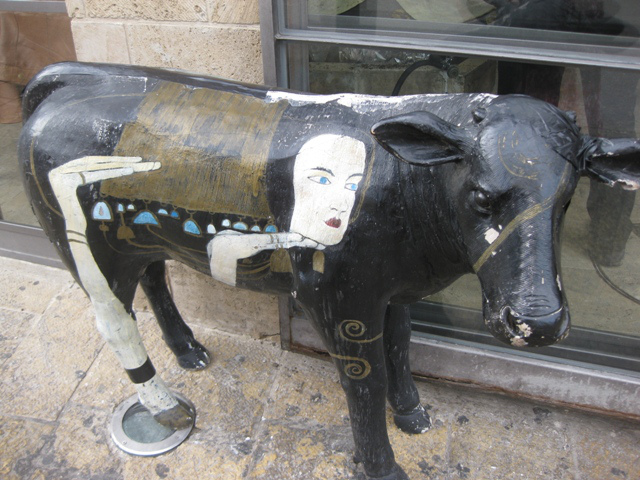
And Art in Tel Aviv
The ever-charming Charming did all the planning for a little surprise Valentine's getaway this weekend to a cottage (sounds better than a one-room concrete slab house) just one block away from the BEACH in Tel Aviv! He sure knows how to win my heart. There are no photos to prove it, but I did a February swim. It was invigorating and refreshing and freezing cold.We've been to Tel Aviv before, but I forgot to tell you that the city's full name is Tel Aviv-Jaffa, because the old city of Jaffa was there before they built Tel Aviv. It's just south of what is Tel Aviv proper. Jaffa was and is home to many Arabs, and this means that Tel Aviv in its entirety is fairly well integrated. Tel Aviv-Jaffa, as I've raved before, is art and fashion friendly. I suspect it's also the only place in the Middle East where an Arab boy or girl could openly choose to love whoever they want to love. All this freedom attracts people who like freedom, and from what I've seen in my travels, that often means artists. Everyone in Tel Aviv has an eye, even the graffiti artists.
 We made it to the Tel Aviv Museum of Art, and saw some Picasso, Renoir, a Monet, and an Israeli artist whose name I've already forgotten and who I don't think will go down in history. I got inspired, as I always to in musems, to make more art.
We made it to the Tel Aviv Museum of Art, and saw some Picasso, Renoir, a Monet, and an Israeli artist whose name I've already forgotten and who I don't think will go down in history. I got inspired, as I always to in musems, to make more art.Although the museum was modern and beautiful (and had a lightfall, whatever that is), my favorite arty experience was visiting the Jaffa Flea Market and seeing the pop art that is the collections of flotsam, collectibles, trinkets, and old shoes that fill the market.Here's one corner of the Jaffa market.
The trip was musically completed by a trip to the cinema to see Les Miserables. It made me SO happy, despite the saddest song in the whole thing ringing through my head these past couple of days ("So different from this hell I'm living!"). Charming and I have been taking turns singing "But the tigers come at night." Sometimes I can hit that low note. Or pretend too. Anne Hathaway worked so hard! And they gave her most of the beginning of the movie, which probably should have been edited down, but I'm so glad they didn't.Anyway, that whole Lay Miz tangent was so I could tell you about the bathroom mirrors in the mall curled around the cinema. Are they doing this in the U.S. now?
Looks like a normal mirror. But it's a surface for advertizing.Genevieve's vanity: Sponsored by oscillococcinum. (I had to wikipedia it. A homeopathic treatment for the flu derived from duck liver and heart.)
So you're supposed to look in the mirror, and be like "Dang. I look ________________. Yeah, I need some duck liver."Then the screen fills with the image, but you can still sort of see yourself through a haze of duck liver product.
Offal good fun,
Genevieve
How I Spent My Holidays
Tel Aviv with Exclamation Points!!!
Happy Dance!!!
 Tel Aviv!!! After a run on the beach this weekend, I returned to the hotel and did a happy dance that Prince Charming was mocking/enjoying all day. I can't believe we waited this long, but the stars finally aligned, and we went to Tel Aviv twice in one week. This weekend to come we will leave for our long-awaited, full-length honeymoon(we previously had a "mini-moon.") But that didn't stop us from acting like this Tel Aviv trip was also our honeymoon. Charming booked our honeymoon, and got such great travel deals that with the leftovers we were able to splurge this weekend on a hotel in Tel Aviv that was less than one block from the beach, and even had a little view of the water:
Tel Aviv!!! After a run on the beach this weekend, I returned to the hotel and did a happy dance that Prince Charming was mocking/enjoying all day. I can't believe we waited this long, but the stars finally aligned, and we went to Tel Aviv twice in one week. This weekend to come we will leave for our long-awaited, full-length honeymoon(we previously had a "mini-moon.") But that didn't stop us from acting like this Tel Aviv trip was also our honeymoon. Charming booked our honeymoon, and got such great travel deals that with the leftovers we were able to splurge this weekend on a hotel in Tel Aviv that was less than one block from the beach, and even had a little view of the water:Fack You in the Mooth
Hummus Loving Babes
Things I Said I Would Do
- A larger-than-Texas sesame bagel smeared with cream cheese and pesto and stuffed with tomatoes, olives, sweet corn, and a hard-boiled egg, then toasted in a panini press. Here it is.
- Sushi rolls topped with cold quail eggs and washed down with hot saki.
- Chewy french style bread ribbed with olives, topped with toasted pumpkin and sesame seeds, and spread with blue-veined cambazola.
- Foccacia and fresh penne pasta salad with bright green broccoli, vivid red tomatoes, and peppers the color of sunshine. It was topped by a snowpile of curly shredded parmesan and washed down with local white wine.
- The creamiest, richest tiramisu of my life.
- Passion fruit sorbet laced with the fruit's crunchy black seeds.
- Chocolate in bar and cake form.
Are you hungry yet? I am and I just finished eating a massive meal. I'm so thankful for good food. I think enjoying food is one of the reasons we are here on Earth, so go out or stay in and cook something AMAZING today!
Another thing I said I would do after the wedding - or rather, would not do, is cut my hair. Why do lots of women cut their hair after getting married? I didn’t want to be like everyone else. I love long hair, and I swore I'd leave it long because I like it that way. But once we got to the West Bank, it felt heavy in the humidity and heat. I was ready for a change. Transitions go together, maybe. The heat and my need for an outer change to reflect the big life changes happening led me to steadily cut my hair off bit by bit, culminating in this final chop I had done at a Tel Aviv salon:



